






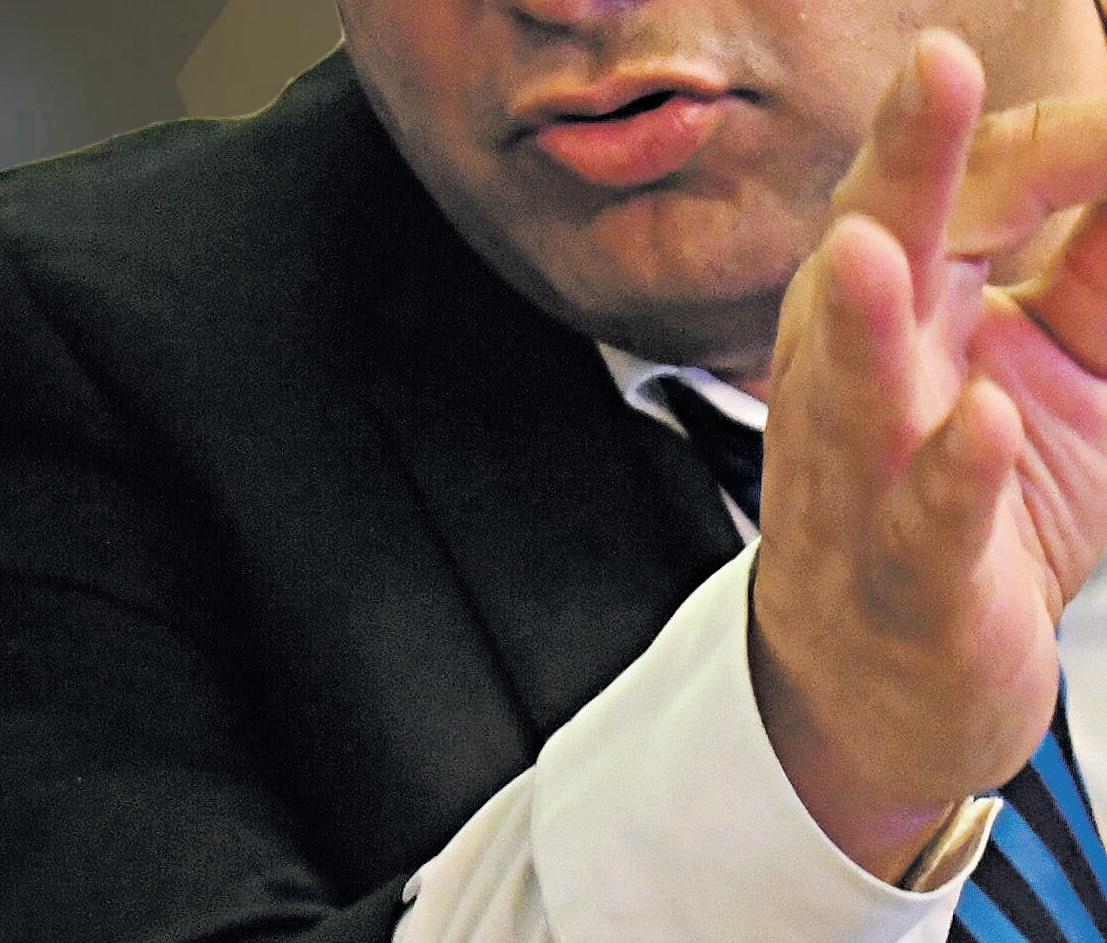



























Bnei Akiva is being urged to reconsider its relationship with a yeshiva in Jerusalem after the head of its overseas programme publicly backed the far-right Religious Zionism party and its leader Betzalel Smotrich.
Former leaders of the religious Zionist youth movement in the UK have spoken out against Yeshivat Hakakotel’s Reuven Taragin in response to a social media post in which he said he was looking forward to collaborating with Smotrich.
Taragin wrote (in a now-deleted post): “I look forward to working with other yeshivot to help Betzalel and the Religious Zionism party help our community.” He also wrote: “I was personally impressed with Smotrich. He is both a talented politician and a true Ben Torah.”
Former mazkirs (leaders) of Bnei Akiva commented on Taragin’s post. Jonny Lipczer said: “Bnei Akiva UK, as a politically non-partisan movement and one that claims to ‘reject all forms of racism, homophobia, and hate’, should consider which institutions are appropriate partners in its Torani programme.”
Michael Rainsbury, another former mazkir, said Taragin’s post left him feeling “empty” and “hurt”. He wrote on Facebook: “I strive to be a Ben Torah…. That’s why this post hurts, as does the normalisation of, and ever-closer rapprochement between, Anglo religious Zionist institutions and the ‘Religious Zionist’ party.
“I will loudly declare that as a religious Zionist I want nothing to do with the ‘Religious Zionist’ party. It does not represent me or my values.”
Smotrich is one of the most controversial lawmakers in Israel,
known for his anti-LGBTQ stance, racist comments toward Palestinians and Arab-Israelis and promotion of Israeli law based on the Torah.
After taking down his post, Taragin wrote: “Sadly, the post o ended many people. I have therefore removed it.” He did not apolo-
gise or elaborate on whether he still supports the party and its leader.
Yeshivat Hakotel is among four yeshivas in Israel Bnei Akiva UK students are o ered to attend for a year of learning.
“The aim of the year is to build a love and commitment to Torah and
Yirat Hashem, while at the same time providing tools of leadership, hadracha training and hasbara knowledge. The goal of the year is to infuse the participants’ passion for contributing to their personal future and the future of Am Yisrael,” it says on Bnei Akiva’s website.
Bnei Akiva’s mazkir, Gidon Schwartz, failed to respond to approaches from Jewish News about whether it would reconsider its relationship with the yeshiva. The organisation has previously taken a tough stance against Smotrich after two of its members met him in London in February.
Bnei Akiva wrote on its Facebook page at the time: “Bnei Akiva UK... remains a politically non-partisan movement committed to educating our chaverim towards tolerance and understanding in accordance with the ideals of Religious Zionism and Torah Va’Avodah.”
•
•
•




HOUSES,
LOOKING
ONE-TO-ONE
(REFERENCES
MEETING
It is time for British Jews to be honest with themselves about the upcoming election in Israel.
In less than two weeks, millions of Israelis will wearily vote in their fifth election in four years. The protracted political crisis there is not over – and the opinion polls suggest this election will do little to change it.
But the polls also tell us something new: the most potently far-right parties in Israel’s history are on the verge of real power.
It is a danger too great for UK Jewry to ignore.
The alliance between Bezalel Smotrich’s Religious Zionist Party and the even more extremist Jewish Power, a Kahanist movement led by Itamar Ben-Gvir, is not

new. Both men are Knesset members right now and when their two parties ran together in last year’s election, they won six seats.
That was a record for the far right, yet on Tuesday two separate polls projected they would double the tally.
Israel’s Channel 11 and Channel 12 say the alliance could take 14 seats, comfortably making it the thirdlargest bloc in the Knesset.
Of the two leaders, Smotrich is better known to a British audience, not least because of a flying visit he made to London in February when nearly all major Jewish communal organisations refused to meet him.
The Board of Deputies even advised him to get back on his plane and return to Israel.
The reason for that rejection is Smotrich’s record. He has made a career out of denouncing everything he perceives to be a threat to a Jewish Israel. Over the years his targets have predictably
included Palestinians and Arabs, as well as anyone who is not heterosexual.
He has also denounced Jews: Bezalel Smotrich considers non-Orthodox streams of Judaism to be a threat to Israel. For someone who happily admits he became religious later in life, he is quite prepared to pass judgement on other people’s faith choices. He believes Reform Jewish conversions should be outlawed.
Astonishingly, his political partner Ben-Gvir is even more extreme. In 1995, he notoriously appeared on television brandishing an emblem ripped from the car of Israel’s then prime minister, Yitzhak Rabin.
“We got to his car, and we’ll get to him, too,” he told the camera. Weeks later, Rabin was assassinated.
And it is not an isolated case: Ben-Gvir still openly praises Baruch Goldstein, the Israeli behind the 1994
PORCELAIN
JEWELLERY PROPERTY
The NHS has announced a new collaboration with an Israeli digital health company to improve mental health treatment in the UK, writes Jotam Confino.
The partnership comes after NHSA’s Parallel Pandemic report found the north of England had been particularly hard hit by mental health challenges during the Covid-19 pandemic, with an estimated cost of £2bn.
The NHS will now incorporate the Israeli company Taliaz’s artificial intelligence (AI) software platform PREDICTIX, which o ers “clinical decision support tools and patient management for psychiatrists and GPs”.
The software translates “complex genetic, demographic and clinical patient data into timesaving and cost-saving assessment, management and prescribing support tools for healthcare providers,” according to the NHS.
PREDICTIX has shown impressive results, with 90 percent of
patients improving after eight weeks after implementation of the software.

“Taliaz’s innovative solution will deliver real benefit for patients here and shows that there is global interest in investing in the North,” Ben Martyn, cluster development manager at the NHSA said.
Grounded research assistant director, Heather Ricem, said “ We are especially pleased that the collaboration will be putting mental health on the map in this exciting and innovative area of medicine, potentially revolutionising mental health assessment and management.”
Dekel Taliaz, CEO and cofounder of Taliaz, expressed confidence in the new partnership having the potential to help hundreds of thousands of patients in the RDaSH area and a population of 17 million in the North of England alone, saying: “We are looking forward to expanding our e orts in the UK.”









MPs from all political parties have welcomed the appointment of Jewish lawyer Daniel Greenberg as the new parliamentary commissioner for standards.
Greenberg, whose nomination was confirmed last month, replaces outgoing Kathryn Stone in the role from January.
In the Commons, chair of the standards committee Chris Bryant enthused about the appointment of the religiously Orthodox lawyer.
The Labour MP said on Tuesday: “Daniel Greenberg is quite phenomenal. He has advised the standards committee several times, and done so with considerable wit, rapier intelligence and sometimes rather frighteningly.”
Bryant – who also paid tribute to Stone – said of her
replacement: “He was absolutely magnificent at interview; I was giving him 10 out of 10 on every single one of the key criteria on experiences and abilities needed to fulfil the role. I am certain that he will do a splendid job for the House.”

Charles Walker, the Conservative who moved the motion to confirm the appointment, had said of Greenberg: “He is a man of formidable intelligence and we are very, very lucky to have him.”
extremely e ectively and build confidence in the system.”
Last year in the role Stone found that Owen Paterson had breached the MPs’ code of conduct. He later resigned.
outside Iran as well as those within Iran”.
As well as legal works, Greenberg has published books of Jewish interest including one on conversion and a collection of his blogs entitled, What If God’s a Christian? His recent monograph,Getting A Get, called on rabbinical courts to change the way they handle divorce cases.
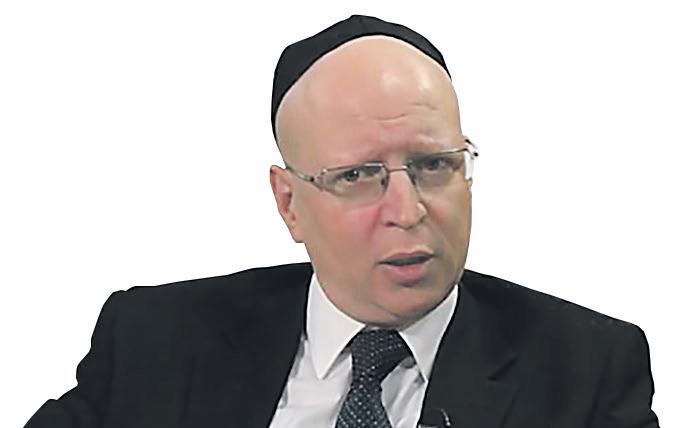
A Liberal Democrat peer has joined calls for the government to proscribe the political enforcement branch of Iran’s armed forces.
Leader of the House Penny Mordaunt added: “The information contained in the commission report have certainly reassured me that Daniel Greenberg possesses the necessary skills and experience to carry out the role
berg possesses the necessary
Greenberg has served as counsel for domestic legislation, was a parliamentary counsel for 20 years and counsel in the O ce of Speaker’s Counsel in the Commons for six years. Two years ago he was made a Companion of the Order of the Bath.

Lord Palmer of Child’s Hill said the Iranian Revolutionary Guard Corps “represents a present danger to anyone the Iranian regime believes is a threat”.

Responding for the government, Lord Ahmad of Wimbledon said “all issues such as proscribing organisations” were “on the table” but refused to give any assurance about time frames.
believes is a threat”.
The peer, who is Jewish, called during a Lords debate for the IRGC to be banned by the UK government “to protect civilians
Jewish, called during the UK govern“to
arrested by the IRGC on
rules requiring women with a hijab.
Iranians have protested over the death of Mahsa Amini, a 22-year-old arrested by the IRGC on 13 September. She had been accused of breaking rules requiring women to cover their hair with a hijab.
Keynote Speaker: Professor Jonathan A Ledermann MD FRCP FMedSci, Professor of Medical Oncology, Clinical Director, UCL Cancer Institute
Date: Monday 31 October 2022 | Lecture begins: 8pm There will be a Q&A session after the lecture
Please email danielleb@chaicancercare.org to register your interest. There is no charge.
Professor Deborah Lipstadt – the United States special envoy to combat and monitor antisemitism – has met with the Chief Rabbi Ephraim Mirvis during a visit to the UK.

They held talks at Rabbi Mirvis’ home in London, where they shared concerns about the rise in hate crime in general and in antisemitism in particular.

During her visit, the academic historian also met the deputy leader of the Labour Party, Angela Rayner.
Lipstadt, appointed in April, tweeted that it was a pleasure


sitting down with members of the party “to rea rm our shared values and commitment to combat antisemitism and other hatreds, wherever they rear their ugly head”.
She was also hosted at the House of Lords by the UK’s special envoy on post-Holocaust issues, Lord Pickles.

Lipstadt, best known for her books Denying the Holocaust and History on Trial, said she was “grateful for the partnership between the US and the UK to fight antisemitism, intolerance and hate on both sides of the Atlantic”.






The Board of Deputies president is under renewed pressure from elected representatives of the communal organisation to explain her comments supporting the government’s proposal to “review” a move of the UK embassy in Israel to Jerusalem, writes Lee Harpin.
Ahead of a meeting due to take place on Wednesday evening, a succession of deputies raised concerns about her remarks, made in front of Prime Minister Liz Truss, at the Tory party conference on 2 October.
Questions that were expected to be put to van der Zyl last night included on what authority she had been given for saying she “welcomed” the government’s proposal, after giving a speech at a Conservative Friends of Israel event. In a further scheduled question, the Board’s president

was expcted to be asked how she would respond if “violence” greeted any UK embassy move from Tel Aviv to Jerusalem.


Another deputy was due to press the president on whether, as part of their commitment to a two-state solution, the Board would support calls for the establishment of a Palestinian state.
There are also concerns about the lack of consultation with deputies before the controversial speech was made.
Some deputies o ered support to the president, including a communal leader who “commended” the speech she made in front of the PM.
Jewish News understands that Van Der Zyl planned to reassure deputies that her CFI speech was made “in consultation” with other deputies who were also at the event.

She planned to refer to the Board’s previous statement, made by former president Jonathan Arkush, in support of the US embassy’s move to Jerusalem.
Van der Zyl was also expected to tell deputies that she does not believe moving the UK embassy to Jerusalem jeopardises a two-state solution and reject claims that the embassy move might be responsible for sparking violence.

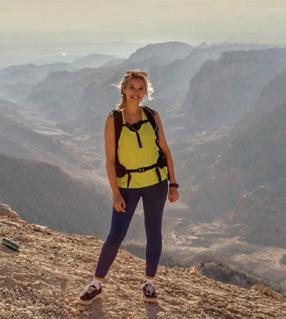
The Board’s president was also set to argue that if fear of violence was the main consideration the state of Israel would never have been created in the first place.





Van der Zyl was expected to confirm that she continues to back the UK government’s proposal to review a move of the embassy.
Wednesday’s meeting was scheduled to take place over Zoom.
























Friends star David Schwimmer has branded Kanye West a “bigot” as he joined a number of A-listers in condemning the rapper’s wild antisemitic rants in recent days.
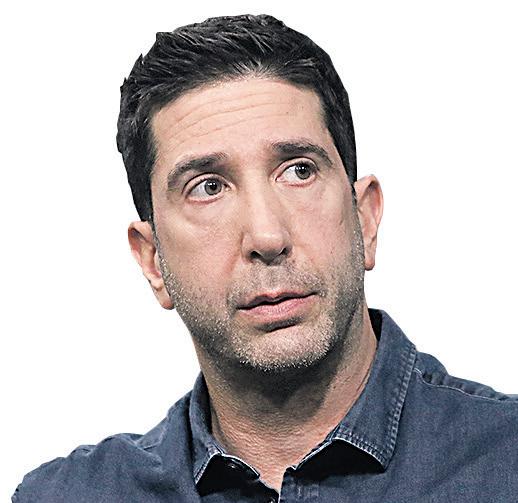
The actor spoke out after the rapper wrote on social media that he would go ‘death con 3 on Jewish people’, leading to him being locked out of Twitter and Instagram.
“Jews make up only 2.4 percent of the population of the US but are the victims of more than 60 percent of all religious hate crimes,” Schwimmer wrote on Instagram.
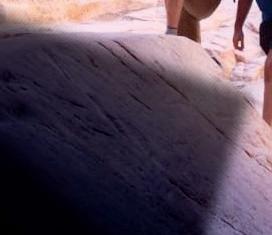




“There’s no question [West] is a bigot. His hate speech calls for violence against Jews. If you interpret his words any other way and defend him, guess what? You are racist. If we don’t call someone as influential as Kanye out for his divisive, ignorant and antisemitic words then we are complicit. Silence is complicity.”



More than 380.000 people liked his post on Instagram, including Friends co-star Jennifer Aniston and comedian Sarah Cooper.
Hollywood veteran Jamie Lee Curtis, who West lashed out at in his latest three-hour interview on the Revolt TV podcast, called on the rapper to “please stop”.
She said: “The holiest day in Judaism was last week. Words matter. A threat to Jewish people ended once in a genocide. Your words hurt and incite violence. You are a father. Please stop.”



Singer John Legend made a more indirect comment, seemingly aimed at his former friend, saying: “Weird how all these ‘free, independent thinkers’ always land at the same old anti-blackness and antisemitism.”

West launched a fresh rank last weekend, claiming Jews own “the black voice” and “milk us till we die”.



London Mayor Sadiq Khan has pledged to “find out what happened” after it emerged that the Metropolitan Police had dropped investigations into two antisemitic Chanukah attacks, writes Lee Harpin.

The force’s failure find those behind the incidents – in Oxford Street and in West Hampstead – has been raised as an urgent issue by both Labour and Conservative members of the London Assembly at Mayor’s Question Time.
Labour’s policing lead Unmesh Desai also raised concerns about a briefing given by Met commissioner Sir Mark Rowley, who wrongly described Jewish News’ exclusive revealing the o cers had dropped a probe into the November 2021 bus incident as “inaccurate”.
Conservative London Assembly member Tony Devenish had questioned Rowley as he delivered a briefing to the London Assembly police and crime committee.
Desai told Khan: “The commissioner told us yesterday that the
police investigation is continuing. It has actually been dropped. This has not helped in the process of building trust.”
The mayor responded by saying: “Hate crime has a chilling e ect on the entire community. I promise to take this away. I’ll seek to endeavour to find out what happened and write to the member and he can make that public.”
chilling e ect on the

Earlier, Desai had asked Khan: “The Jewish community press has told expressed anger for the police dropping the investigation into two appalling antisemitic incidents, one in central London, and one in Golders Green. Will you urgently look into this matter and get the Metropolitan Police to respond?”
knife attack in West
re-open this investigation and catch these evil racists. It’s so important to public confidence for all Londoners that antisemitism is never tolerated.”
Home O ce hate crime statistics published last week showed another big increase in religiously motivated attacks against both Jews and Muslims across England and Wales.
to an alleged lack of resources.
Following the Jewish News report on the police decision to drop the Oxford Street probe, the Jewish Chronicle revealed that a second investigation into a knife attack in West Hampstead by a man saying he wanted to “find a Jew to kill”had been dropped owing to an alleged lack of resources.

Hammersmith and Fulham councillor Devenish had mentioned last week’s Jewish News report to the Met commissioner.
Desai told Jewish News: “These investigations are a key part of retaining faith and trust in the Met within our Jewish community in London Such crimes are unacceptable anywhere, but particularly so when they occur in the heart of our city and in the heart of our Jewish community.
this month that the Met

We revealed earlier this month that the Met had dropped its probe into the bus incident after three appeals for identification of the culprits, who were filmed.
The Met confirmed that it had dropped the case in July, saying the appeals had produced no clue to the perpetrators’ identities.
Devenish told Jewish News: “The Met must

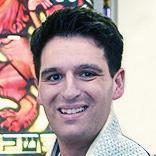

“Last week was National Hate Crime Week, highlighting the worrying rise in all forms of hate crime. We must remain steadfast in our fight against hate crime everywhere and foster closer links between the Met and community organisations such as the Community Security Trust, who work tirelessly to protect Jewish institutions across our city.”
Jewish News, the JC and Campaign Against Antisemitism has announced a £30,000 reward for anyone with information that helps to convict those responsible for the abuse of a group of youngsters on a hired bus in Oxford Street.



World class Chazen Shulem Lemmer from New York will sing with the renowned Avromi Freilich of Hampstead Garden Suburb Synagogue and Alby Chait from Leeds.

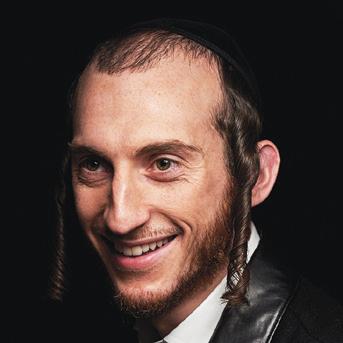
They will sing together for the first time at two inaugural concerts in Leeds and London, with a compilation of solos, duets and trios of familiar show tunes and traditional Jewish songs.


Under a haze of early morning cigarette smoke, two Jewish men from Ukrainian cities in areas occupied by Russia were discussing how much they miss their parents. Neither had seen them for months and in the brief exchanges that they have had with them, they could only say so much without fear of putting them in danger.
“We can’t talk about the war,” says Moshe, who is from Kherson in southern Ukraine, occupied by Russian troops since early in the war. “I don’t want to make things difficult for her. I think that people are listening in.”
When Russia invaded Ukraine in Feb ruary, Jewish families in southern and eastern Ukraine faced a difficult choice: flee and become refugees or stay put and protect their homes.
Many broke up, as elderly parents refused to or could not leave their hometowns, while their children left with the retreating Ukrain ians or took steps to escape the Russian occu pation and find themselves back in Ukraine.
“She doesn’t want to leave. It is not because the Russians are there now that she wants to stay,” Moshe says, clearly nervous about giving away too much information to a stranger. “She wants to stay because it is her home.”
Moshe had come to Vinnytsia, a town in western Ukraine, for work two weeks before the invasion. Beside him was Igor from Berdy ansk, a town on the Sea of Azov, who smuggled himself across Ukrainian lines after the Rus sians occupied the city. His decision to leave came after friends were arrested on suspicion of being pro-Ukrainian partisans.
“They occupied the city on 5 March,” he says. “I was able to break out in April. They completely shut down the city for a week

after they entered the city looking for soldiers and partisans. They were sending people to prison, or rather, that was the good way.”
He, too, left his parents behind. “I speak to them when I can,” he said. “There is not always signal.”
Russia illegally annexed four occupied Ukrainian regions in late September after staged referendums. I spoke to Jews from all four regions that still had contact with rela tives back home. Nobody that still had family in Russian-held areas was willing to give their full name for fear of possible consequences.
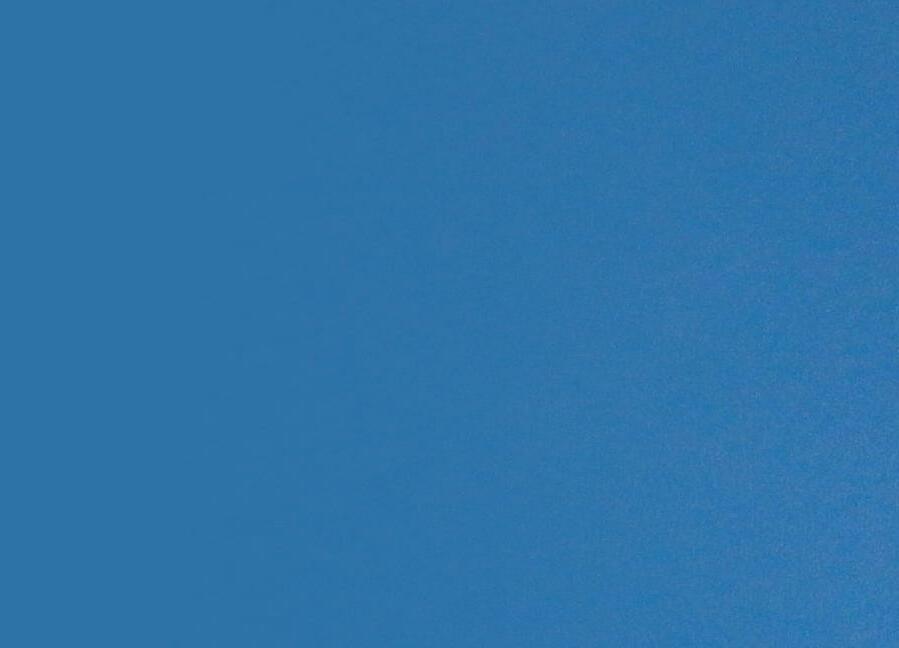
In territories that had been occupied by Russia but have been reclaimed by the Ukrainians, government and human rights watchdogs have found evidence that people suspected of Ukrainian sympathies were tor tured and murdered.

It is not known how many Jews are cur rently living in areas under Russian occu pation, although it is believed that a large number have left since the Feb. 24 invasion. Many evacuated through humanitarian corri dors to Ukrainian-held territory, while others have left through Russia and either made the long trip through the Baltic states, Poland, and back to Ukraine, or gone onto Israel. “You need money to do this,” noted one man.
Israel’s ambassador to Ukraine, Michael Brodsky, said that Israel did not “directly” have contact with Jewish communities in areas that Russia controls. “We do not deal with the occupied territories at all,” he said.
When asked what support Israel could provide to Jews in occupied areas of Ukraine, he stated: “We do sometimes get requests for humanitarian involvement and we assist on a humanitarian basis, but this is not a general policy.”
“We sometimes get requests from Israeli citizens that their relatives are somewhere in the occupied territories,” he added. “We can make an inquiry. We can also speak via our embassy in Moscow with the Russians about it, as long as it is a humanitarian issue. It is fine.”

The Ukrainian government also said that it did not have direct contact with Jewish communities in occupied areas of Ukraine, explaining that it was dangerous for many to maintain a line of contact with the Ukrainian government. The only rabbi known to remain in Russian-occupied areas, in Kherson, did not reply to a request for comment.

That rabbi, Chabad’s Yosef Yitzchak Wolff, recently described a grim situation to Chabad.org, the news service of the Orthodox movement. “Nothing has changed in half a year. There’s been no improvement,” he said just before Rosh Hashanah, adding, “We’re still in a war, but we’re making sure everyone is able to have a happy, sweet new year.”
Since Igor left Berdyansk, the messages that he has been getting from his parents paint a picture of a Russian occupation that has become more paranoid and oppressive.
“If you are standing around smoking, they come up to you to check your documents and question you. They ask you what you are doing there and why you are hanging around.”
“It is banditism. There is no society,” he explains. “They come and ask you for money and if you do not cooperate, they take your children and demand a ransom.”
A recent investigation by the Associated Press found that Russia has taken thousands of Ukrainian children to Russia for adop tion and propaganda and given them Rus sian passports. Many were taken without their consent and told that their parents had rejected them, according to the AP report.
Among all the Jews interviewed that had left areas occupied by Russia, there was pes simism that any serious Jewish life could be sustained. “There are maybe around 100 Jews left in Berdyansk,” said Igor. “But they are only old people – all the young ones have left.”
He did not believe that being Jewish in areas now occupied by Russia made any dif ference. “Nationality doesn’t matter for the Russians. For them, these people are not people, they are animals.”
While Berdyansk was too small to have a full-time rabbi before the war, further along the Sea of Azov, Mariupol did. It has become a symbol of Ukrainian resistance after Ukrainian soldiers held out for almost three months, in a battle that destroyed much of the city.
There is still financial and other support from outside Ukraine that is being provided to Jewish communities in areas under Rus sian occupation, but few are willing to talk openly about it. It is a crime under Ukrainian law to send money to areas under occupa tion and there is concern that if the methods used to support Jews in these cities becomes public, fragile networks and people could be put at risk.
“There are a few old people from the com munity that refused to leave in Mariupol,” said Olga, a teacher who was closely involved
with the Jewish com munity in the city. “They stayed and they are still getting support from the Jewish community.”
Olga said she had made contact with colleagues who have been pressured into taking up work at schools run by the Rus sians. “They were under pressure. They need to survive,” she says. “They told me that they burned all the Ukrainian books and teaching materials and replaced them.”
The Russian occupation is palpable in every way for those left behind in the city, Olga said.
“Mariupol is totally destroyed,” she said. “It is hard to communicate with people who are there. There is not always internet. They told me that they opened Russian shops with Russian products, but that they can’t afford them. These places are not affordable, because they don’t have money.”
In Luhansk, where Russian-backed sepa ratists have been fighting the Ukrainians since 2014, the men of an already depleted Jewish community are living underground for fear of conscription.

“I speak to Luhansk every day,” says the exiled rabbi of Luhansk Shalom Gopin, a Chabad emissary who has been based largely elsewhere since 2015, amid the war that fol lowed Russia’s first, more limited invasion. “It is a very bad situation there and there is a big problem with the men. The men don’t want to leave their homes because they can be conscripted and taken to the army.”
“The Jews don’t go out. If you don’t go out, they can’t come and get you and take you to the army,” said Gopin, who added that a few Luhansk Jews have been conscripted and that a small number have been killed at the front, fighting against the Ukrainian military.
When war erupted in eastern Ukraine
in 2014, the vast majority of Jews in the two regions that were partially occupied — Luhansk and Donetsk — left for elsewhere in Ukraine. That included Gopin, who left first for his native Israel and then for Kyiv. Those who remained, said Gopin, were either elderly or backed the Russians.
“There is a working community still in Lugansk that prays four times a week,” he added. “But this is not a community. It is old people, sick people, bad people. It is not a living community. It is a very bad community. There is no future.”
In areas of Luhansk that were Ukrainiancontrolled before February 2022, the few Jews that lived there have been largely cut off, even though Gopin said he has managed to facilitate the evacuation of some Jews from occupied areas.
“They don’t have water, they don’t have gas, they don’t have internet. There are Rus sian flags all over the place,” said one woman from Lyschchansk, another city where a major battle was fought between Russian and Ukrainian forces, about her parents who remained there.
“There is no life and there is no prospect of life there,” she added. “They stayed because they would not give up their home and they said that their life was there, and they wanted to stay put. They won’t leave, it is useless trying to convince them.”



The Rugby World Cup kicked o across England last weekend after a one-year delay due to Covid. Arguably the man most excited to be at the matches is former chief executive of the Jewish Leadership Council, Simon Johnson.

Johnson, who now chairs the Rugby League, is a media and sports executive who was at the helm of the JLC for seven years, before standing down in early 2020.
He is a former chairman of Hampstead Garden Suburb Synagogue.
His passion for the game came through when he spoke to Jewish News from his place in the stand in Kingston Park, Newcastle, where he was about to watch Scotland play Italy. (Scotland scored a dismal four points to Italy’s 28).
He said: “This is rugby league’s opportunity to use its greatest ever shop window, by these games being heavily promoted, all broadcast on the BBC, and being held [mainly] in the north of England. It will allow more and more people to experience the passion, the excitement, and inclusivity of the sport and to see what rugby league does for the communities in the north that play it.”
Determined to see as many live games as he could, Johnson had booked into a Newcastle hotel close to another of the main venues, St James’ Park, so that he could walk there on Shabbat and see England thrash Samoa 60-6. He also attended the Australia versus Fiji match at Headingley in Leeds, with a 42-8 score in Australia’s favour.
He hopes holding the tournament in England will raise the profile of the game generally, but said there was a longstanding appeal to the Jewish community.
“There were Jewish players who played at the turn of the last century and there’ve been Jewish owners, particularly the Leeds Rhinos Club, which had a lot of Jewish fans and directors. I do hope that people in the Jewish community who’ve not yet experienced rugby league catch a game on the BBC, and then decide to see it live.”
Uniquely in world sport, Johnson said: “We are running the men’s, women’s and wheelchair world cups simultaneously. That gives equal billing, and it’s fantastic to show the inclusivity. The wheelchair World Cup competition has a lot of games being played at the Olympic Park in London, and that is absolutely worthwhile trying to see. We have a
World Cup men’s semi-final taking place at the Emirates Stadium; and the finals of all three competitions are in Manchester over a 24-hour period.
“So people from our community who want to see the great game in the flesh will have the opportunity to do so at places relatively convenient and accessible.”

Israel does not have a rugby league team, he said, but he has received approaches from people keen to establish the sport there. “There is an interest from ex-pats in Israel, and the International Rugby League Federation, of which I am a director, is keen to encourage that, so people should keep at it.”

Previously, Johnson was involved in the bid for the football World Cup to be held in England. He believes the tournament “should never have been awarded to Qatar”, and said staging it there had “disrupted the football calendar”.
He added: “I’m sure the Qataris will do a great job and run it professionally, but it’s caused too much disruption to world football and the integrity of the sport.” Normally he would know many people who would travel to a football World Cup. This time, he had not come across anyone: “I think there’s been a quiet decision to stay away – for whatever reason.”
Robert Rinder has criticised David Beckham for striking a £10m deal to promote the forthcoming football World Cup in Qatar, accusing him of putting “money before morals.”
The outspoken television judge and Good Morning Britain host also attacked the decision to hold the major tournament in the oppressive Middle East nation as a “disgrace”.
The Jewish presenter, who is gay, condemned Qatar’s treatment of migrant construction workers, thousands of whom are said to have died while building stadiums for the tournament, which starts next month.
Rinder said:”There should be basic requirements before you are entitled to [host] them, and that’s not just about LGBTQ.
“It’s about the 6, 500 workers who died, it’s about the fact that Beckham’s daughter Harper would not be able to continue with her education [if she were Qatari] without the permission of a male relative. It is tragic that we are about to have the World Cup in Qatar. We need to do the best, all of us, to highlight all of the issues I’m talking about.”
The popular communal celebrity told the Mail on Sunday: “We can’t bury our heads in the sand. You know this is about money, not about the purity or love of the game. What a tragic moment that is.’’ He pointed out that history showed hosting sporting events did not always lead to political change, pointing to Russia previously hosting the World Cup.
Newbury-basaed auction house Dreweatts has been appointed to sell an array of jewels from the private collection of Renée Louise Marie de Rothschild (1927-2015), the daughter of Anthony Gustav de Rothschild (1887-1961), of the banking dynasty, and Yvonne Lydia Louise de Rothschild (née Cahen d’Anvers, 1899-1977).
A keen equestrian, Renée Louise married former British Olympic show-jumping champion Peter Robeson OBE (1929-2018), known as the godfather of British show-jumping, and together they became hugely successful racehorse trainers from their stud in Buckinghamshire. The auction takes place on 23 November


Amnesty has confirmed it is to publish a new report outlining what it claims are “serious human rights violations committed during the course of a sustained Israeli military o ensive in Gaza in August”.
The research, due to be published before the end of the month, comes as the human rights organisation steps up its campaign calling for the UK government “to do significantly more to support the human rights of Palestinians”.
Asked if the new report would also include details of human rights abuses committed by Palestinian terror groups such as Islamic Jihad or Hamas, a UK Amnesty spokesperson said they were still waiting on full details of the content.
Ahead of the report’s publication, Amnesty was also promoting an event in London on Monday night to “rally opposition against attempts in the UK to outlaw polit-
A JCoSS student missing in London for 48 hours was found safe and well in a garden near his friend’s house in Barnet. Josh Herman’s mother had reported him missing to the police on Sunday after he had left his father’s house without his phone the night before and hadn’t returned home. Relieved mother Gloria said: “I cried tears of happiness. I think he has some guardian angels looking out for him. I know it could have been a very different story.”
Dame Esther Rantzen has congratulated the BBC on its golden anniversary after it reached 100 years of broadcasting, saying: “You are enormously valuable not only to Britain, but to journalism around the world.” The Jewish presenter, who was a fixture on the BBC for decades, added: “On your 100th birthday, you used to get a congratulations from the Queen. Well, sadly, that’s not possible, but at least I have the same initials.” The corporation is marking a century since it was founded.
ical activism based on boycotts, sanctions and divestment (BDS) campaigns”.

The event, chaired by the South African writer Gillian Slovo, was called Protecting The Right to Boycott: Preventing Impunity.
Fighting had erupted between Israel and Islamic Jihad last August after terrorists were targeted over claims they were planning attacks.
The conflict lasted for three days, with Israel confirming they had killed 20 individuals.
Islamic Jihad fired at least 1,000 rockets into southern Israel in retaliation for what Israel described as the “pre-emptive” o ensive to thwart a planned major attack by the terrorist group. Egypt and Qatar brokered a ceasefire.
The Israel Defence Forces (IDF) managed to kill two senior Islamic Jihad commanders, on top of arresting another, Bassam al-Saadi, in the occupied West Bank city of Jenin.
Sixty people in Israel su ered minor injuries, but the majority
of Islamic Jihad’s projectiles were intercepted by the Iron Dome missile defence system.
According to the local Palestinian authorities, 47 people were killed, among them 16 children.
A further 360 people were injured and more than 650 housing units were damaged over three days.
In February, Amnesty released a 280-page report alleging Palestinians are now living under

system of “apartheid” in the occupied territories. It claimed Israel was seizing Palestinian land and property, and that there have been “unlawful killings, the forcible transfer of Palestinian people from their land, and the denial of nationality and citizenship to Palestinians”.
The report concluded the incidents were all “components of a system amounting to apartheid
under international law”.
Amnesty has faced claims it has an obsession with Israel. Jerusalem-based watchdog NGO Monitor produced a detailed response to February’s report which said Amnesty’s conclusions were “fundamentally flawed” and “construct a fraudulent and libellous narrative of Israeli cruelty.”
In June, Amnesty International secretary general Agnès Callamard claimed those who criticise its “apartheid Israel” report were “weaponising antisemitism”.
An Amnesty spokesperson promised to send Jewish News a copy of the new report ahead of its expected publication at the end of next week.
The spokesperson also stressed the organisation produces a “very wide range” of research throughout the year.

Over the past month, reports have been published by Amnesty on rights abuses in Iran, Latvia, Botswana, Mali, Indonesia, Somalia and Afghanistan.
Protecting and securing the Jewish community in the UK against antisemitism is what we do. From the streets of London in the 1950s through to the hate-filled internet chatrooms of today, CST will leave no stone unturned in the fight against those who wish to do us harm. This is not something that we can do without your ongoing and long-term support.

A legacy to CST will ensure that our community is not only protected against the continuous threat of antisemitism but is also given the security necessary to flourish in the future. Contact us on 020 8457 3700 or email legacy@cst.org.uk.






The government is poised to drop its landmark Schools Bill, which had included greater powers to tackle unregistered yeshivot, writes Lee Harpin.
Reports yesterday claimed that Liz Truss had agreed to drop the legislation to concentrate matters seen as more pressing around the economy.
Jewish News understands that some leading campaigners against the Bill from the community had also been expecting an announcement about it being dropped last month.
A Downing Street spokesperson refused to comment on the report in the Times suggesting the Bill had now been dropped, adding that the
education secretary would be speaking further in due course. The PM is known to be less enthusiastic about the legislation than her predecessor, Boris Johnson.
In the Lords, schools minister Baroness Barran had recommended a number of clauses in the Bill be amended. And former education secretary Lord Bake warned that the academy standards and regulation it recommended would lead to a central government takeover of academy trusts.
The proposed Bill divided opinion within the community as it was unveiled.
Eve Sacks of Nahamu, a think-tank lobbying on harms within the Charedi community, was
among those to welcome the prospect of legislation which would ensure home-schooled children were properly registered and all schools are fully licensed. But leaders of the strictly Orthodox community took part in a succession of protests outside Westminster over claims the government was attempting to suppress religious freedom. They wore yellow stars, claiming there was a comparison to be drawn between the behaviour of the German Nazis and those behind the Bill. But the stunt infuriated many in the community, including Holocaust survivors and charities.

The Bill included recommendations to ensure more of a secular curriculum was taught,
including lessons about relationships and sex.
Jewish News understands that while the Bill will be scrapped, ministers are planning to bring back some elements of it in simpler legislation at the next session of parliament, in May.
This would include the establishment of a register of children not in education and powers to tackle illegal schools.
A extreme right-wing terrorist and Miss Hitler beauty pageant contestant who joked about gassing synagogues is to be released from prison on licence.
The Parole Board said after an oral hearing it has directed the release of Alice Cutter, who was jailed for three years in June 2020 after her conviction for membership of banned group National

Action. She is reportedly being held at New Hall prison in West Yorkshire, where serial killer Rosemary West was an inmate, and will be freed after serving at least two-thirds of her sentence.
Prosecutors at Cutter’s trial said the 26-year-old former waitress entered the beauty contest as Miss Buchenwald – a reference to the WWII Nazi death camp.
The trial judge said although Cutter “never held an organisational or leadership role” she was a “trusted confidante” of one the group’s leaders, her boyfriend Mark Jones, who was tried with Cutter and jailed for five and a half years.
The right-wing group, labelled “racist, antisemitic and homophobic” by thenhome secretary Amber Rudd, was out-
lawed in December 2016 after a series of rallies and incidents, including praise for the murder of MP Jo Cox.
Cutter, who attended the group’s rallies, which featured banners reading “Hitler was right”, denied being a group member after the ban.
But evidence at her trial showed she continued to be an active member.




Binyamin Radomsky
Chartered Accountant (UK & Israel)


Aboulafia, Avital, Shrensky & Co.



– details upon
Police o cers this week held a guard of honour for CST volunteer and former longstanding head of JNF-UK Simon Winters, who died from cancer aged 62, writes Adam Decker.
The flying and motor racing enthusiast, who was given an OBE in 2009 for his charitable work, volunteered as a sergeant with Hertfordshire Police from 2018, continuing even after a terminal brain cancer diagnosis.

He was named Special Constable of the Year – for the second time – as colleagues gave him a guard of honour, attended by the chief superintendent, chief inspector, inspectors, sergeants, PCs and community support o cers, many of whom worked with him.
“The loss of Special Sergeant Simon Winters leaves a huge void within Hertfordshire Constabulary,” said Hertsmere Chief Inspector Mark Bilsdon. “Simon was an exemplary Special... He volunteered endless hours to keeping the public safe and in 2021 he recorded well over 1,000 duty hours. This is an astounding amount and goes far beyond the minimum expectation of 200 hours.
“As the vice-chair, Simon was a key figure in the Hertfordshire Jewish Police Association, a support organisation that he helped create. He will be greatly missed by his fellow Specials and the wider constabulary including all of us at Hertsmere.”
Winters was “a long-standing, dedicated and inspiring volunteer” for the Community Security Trust and its predecessors from the 1980s onwards, said the charity’s chief executive, Mark Gardner. “He was instrumental in establishing and leading the security team at Borehamwood & Elstree Synagogue and in Hertfordshire more widely, supported by his wife Susie.”
Winters helped to organise one of the first joint CST/police patrols for the High Holy Days, said Gardner, adding: “Throughout all of this, Simon was the embodiment of the volunteer ethos and dedication to community to which we all aspire. We will miss him greatly and will always value and appreciate his contribution to keeping our Jewish community safe.”
Winters was also instrumental in setting up the Petra Ecclestone Foundation in 2016, and subsequently Petra’s Place Therapy Centre and Nursery, helping autistic children and their families. Sarah Kyle from the foundation paid tribute to “a charismatic and kind-hearted leader whose dedication to charities throughout his career was admirable”.
He is perhaps best known in the community for being the long-serving chief executive of JNF UK, before parting ways with the organisation in 2008, shortly after the arrival of new chairman Samuel Hayek.
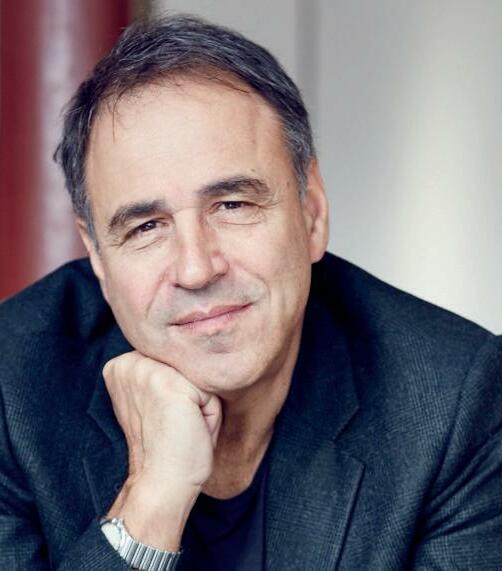
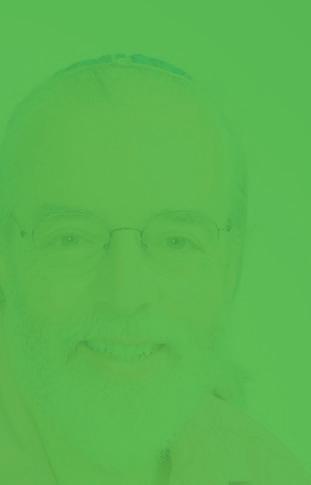

More than 400 people attended his funeral at Bushey New Cemetery, led by Rabbi Alex Chapper. A friend, Craig Lawrence, paid tribute online to “a super family man”. Former Maccabi GB chief executive Martin Berliner, who worked with Winters in the early 2000s, paid tribute to his “great vision”. He said:
“JNF became our first principal sponsor in 2001 and remained so for several years, which allowed us to build a professional framework that remains in-place today.”


Winters spent most of his career in the non-profit sector, fundraising about £12m for JNF UK, where he oversaw an array of high-profile events.
Top law firm Mishcon de Reya launched a “significant intervention” on behalf of Jewish Labour Movement members after they were “targeted” by broadcaster Al Jazeera during a recent television series, it has been confirmed.


The Qatari-owned TV channel last month broadcast a three-part programme called The Labour Files which attempted to blame Keir Starmer for a series of allegations that occurred under previous leader Jeremy Corbyn.

The programme’s central aim appeared to be to try to discredit claims around Labour’s antisemitism crisis. But it has now emerged that before the broadcast, Mishcon de Reya wrote to the channel alleging the “harassment” of at least seven Jewish Labour members.
Jewish News understands Al Jazeera reporters approached a
prominent victim of antisemitic abuse to ask if they now wished to apologise for revealing the abuse.
Confirming the intervention, JLM’s Adam Langleben emailed group members and described the programme as “a hit-job on Keir Starmer and the Labour Party, purposely timed to cause chaos at Labour Party Conference”.
Langleben said the programme “sought to cast serious doubt on the lived experiences of Jewish Labour
members and undermine the EHRC’s findings. They failed.
“However in the process of production, Al Jazeera, for the second time in recent years, targeted a number of Jewish Labour activists.
“We take our duty of care towards our members very seriously. We have all been through too much and learnt that we are always stronger together.
“That is why we launched a significant legal intervention prior to the broadcast of Al Jazeera’s series. We believe that this stopped some of the worst and most libellous allegations being aired. We will always stand up for our members.”
Langleben tied the email to an appeal for contributions toward the cost of the intervention, which, he said, “did not come cheap”.

Jewish News has contacted Al Jazeera for comment.


Abuse directed at the organisers of a debate held at the London School of Economics (LSE) with the Israeli ambassador to the UK has left the institution reluctant to host future speaker events, a report has found.
The paper by think tank the Higher Education Policy Institute (Hepi) says of the November 2021 debate with Tzipi Hotovely: “At the LSE, the ‘stress’ involved with hosting the Israeli ambassador split the committee, around half of whom resigned.
“It made LSE reluctant to host future speaker events and reduced turnout to other events they ran.”
Hepi claims to have found a culture of “quiet no-platforming” and a climate of fear which is now constraining free speech at universities.
Two events at Queen’s University Belfast – one on Israel, again featuring the ambassador, the other discussing abortion – were met with protests outside the event venue.
A president at the Oxford Union
refused to hold a panel discussion on Israel and the Palestinians.
The just-published report says students are scared to invite speakers regarded by some as controversial due to potential abuse, the lack of support from student unions and because of the cost of security.
It is claimed Liam Neeson, Harry Enfield, Tony Blair and former Australian prime minister Tony Abbott are among names student societies decided not to invite because of probable backlash.
It suggests unions or societies at Manchester, Oxford, St Andrews, Imperial College London and Cardi have all shied away from inviting certain speakers.
The report said: “Protests and comments are legitimate and legal expressions of free speech; clearly targeted harassment is not. This backlash culture creates a climate of fear among student organisers who resultingly avoid di cult events.”
Brits in Israel could soon be allowed to give blood again if the Israeli government overturns a ban based on the risk of transmitting a fatal brain infection linked to Mad Cow Disease.
British olim who lived in the UK for six months or more between 1980 and 1996 are not allowed to give blood in Israel for fear of transmitting Creutzfeldt-Jakob Disease (CJD), which causes brain damage and kills most of those who catch it.
The ban has long incensed Brits who have made Israel their home, but this week Magen David Adom’s head of blood services said there was “good news” on the horizon.
This is because “the issue is being discussed by the expert committee advising the Ministry of Health on transfusion medicine, which will recommend to the Ministry of Health to rescind the ban,” said Prof. Eilat Shanar.
It marks a trend and follows similar recommendations from the United States’ powerful Food and Drug Administration and from the Australian Blood Services, with those born after 1997 already able to give blood in Israel once they reach 18.
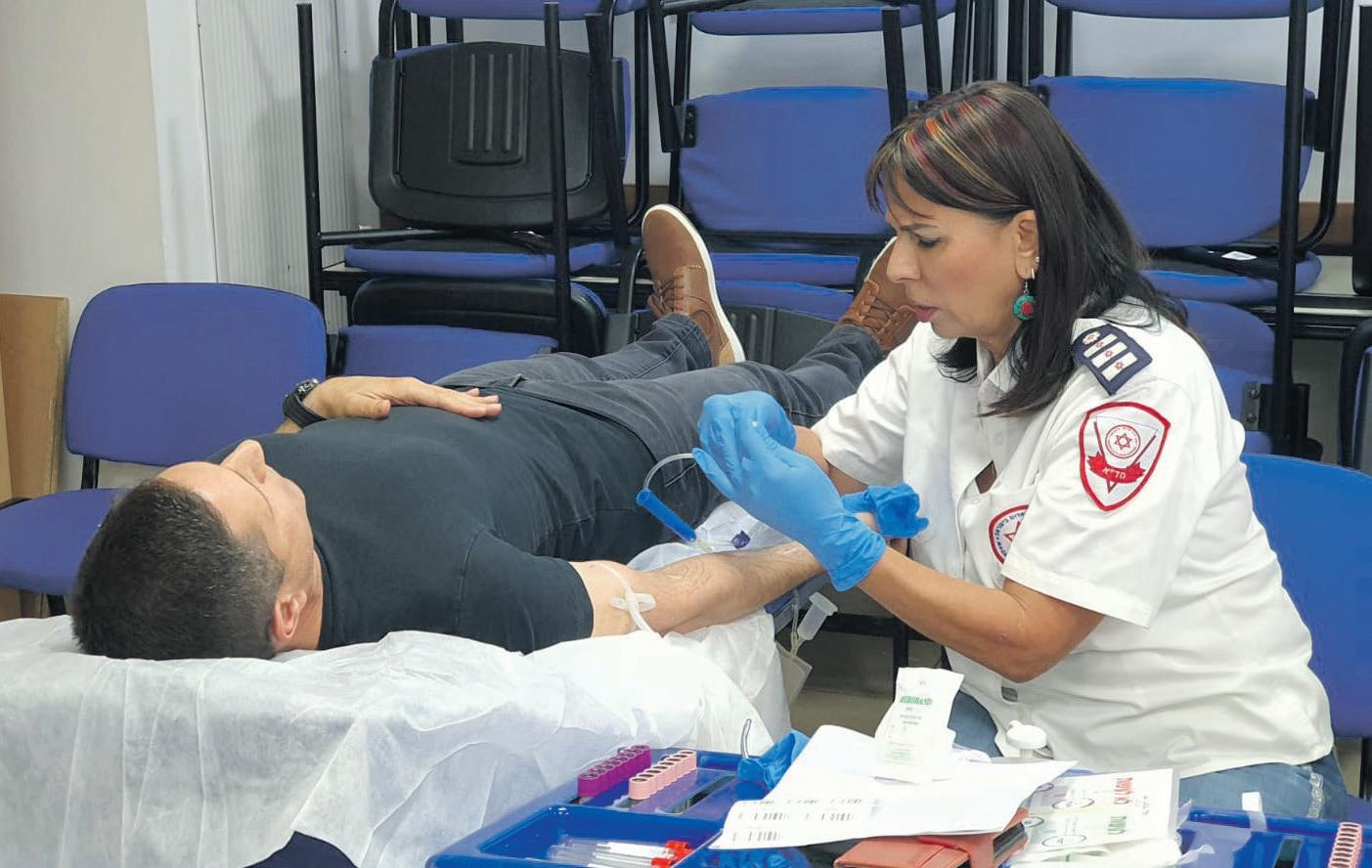
As Shanar explained, the Israeli prohibition covers olim who lived in Britain for more than six months, underwent surgery there, or received a blood transfusion there between 1980 and 1996. Other countries have issued similar bans, based on a World Health Organisation (WHO) ruling.
“The directive is included in the procedures of the Ministry of Health, which are based on international procedures,” said Shanar. “The reason for rejecting donors is the desire to prevent the risk of transmission
Anton Delin, an administrator of the Facebook group Brits Living in Israel, which has 9,000 members, said the current ban on Brits giving blood was “outrageous”.
Delin said: “I can donate my organs to someone in Israel but, having lived in the UK during the 1980s, which is now 40 years ago, I still can’t donate my blood. It’s very upsetting and unfair.”
Fellow olim Dvora Green said: “I used to donate every four months in England. It’s such a shame. I could have donated for 22 years. It makes me sad and frustrated, especially when I see a shortage in Israel. Olim from Britain have lost the potential to contribute and do a huge mitzvah. It makes me angry.”
sentiments. “It drives me crazy when I see reports of a shortage of blood, yet they won’t accept mine because I’m British.”
Gita Goldschmidt Kramer felt likewise. “It’s very frustrating, especially when a cousin desperately needed blood and none of the family could help. I had a letter from the London Board of Shechita explaining how, due to kashrut, anyone keeping kosher couldn’t be infected with Mad Cow Disease, but it still wasn’t accepted.”
of the disease nvCJD, otherwise known as Mad Cow Disease for the blood recipients.
“Currently, there is no test that is accepted in blood banks in England and around the world that can be done to donors or administered to detect morbidity from this disease.”
Last month, Jewish News donated a bloodmobile to Israel in memory of the late former Chief Rabbi, Lord Jonathan Sacks, which will travel the country to collect blood from up to 80 donors a day. Few if any of those donors will have been born in Britain.
Lifelong vegetarian Ruth Pepperman said she “never understood” the ban. “I gave blood in England until we made aliyah in 1981 and I gave blood here for several years. Then, all of a sudden, my blood was no good! It’s irrelevant now due to age but it was a huge source of annoyance and frustration at the time.”
As a volunteer in Magen David Adom (MDA), Francis Shrago takes this personally. “I was a regular blood donor in the UK and every time I see a donor van or go into MDA, I go in there to ask and complain. Whenever I go back to the UK to visit, I try to arrange to donate there.”

Sarah Fairweather Shamir echoed the
To Noami Rand, the impediment stretches beyond blood. “Not being able to donate bone marrow is even more frustrating,” said Rand. “Two of my sons were matched and donated. Who knows, maybe I too could have saved a life, but because I lived in the UK during that period, they weren’t interested.”
Leiah Elbaum shared the feeling of impotence expressed by many, saying: “It’s incredibly frustrating not to be able to do one’s part for the country, especially when there are blood drives during times of crisis, or you see a call for your blood group.”
She added that the “most frustrating” aspect was that, during the years in question, she was a strictly kosher vegetarian. “To the best of my knowledge no kosher herds of cow were a ected, and you cannot contract CJD from eating dairy, even from an infected cow.”
Arriving as an 18-year-old in 1991, Benjamin Reisman donated blood twice in Israel in the early 1990s before returning to the UK to study at university after serving in the IDF. He later made aliyah in 1997.
“I remember that first time that I was turned down,” he says. “We’d moved to Neve Tzuf and MDA were running a blood donation afternoon in the hall under the shul. I turned up and started filling in my details.
“Suddenly, someone said I wasn’t allowed to give. I jokingly said, ‘Do I look Ethiopian to you?’, knowing that a short time before, Ethiopians in Israel had been banned from donating blood. Then one of the medics said it was due to Mad Cow Disease and Brits could no longer give blood. That was nearly 25 years ago. We still can’t give blood. In my opinion, the only connection to cows is that this policy’s continued enforcement by the Ministry of Health is complete and utter bulls**t.”
USED TO DONATE IN THE UK. IT’S SUCH A SHAME – I COULD HAVE DONATED FOR 22 YEARS IN ISRAEL
❝
Buying your first home can seem like an impossibility. How can you find something you can afford? In London?
Shared ownership can make your dream come true. You buy an initial share of 25%-75%, paying rent on the remaining portion. This means, for example, at 25%, you need just a quarter of the deposit. Over time, as you can afford it, you can buy a bigger share, and ultimately own the property outright. If you sell before then, you keep your share of any change in value.
The Industrial Dwellings Society (IDS) was founded in 1885 by a group of Jewish philanthropists, and is an experienced provider of culturally-specific housing for members of the Jewish community. We are developing a number of new shared ownership opportunities.
To be the first to hear about these, and to learn more about shared ownership with IDS, add your name to our priority list at ids.org.uk/shared
The White House this week branded remarks about American Jews by former US President Donald Trump “antisemitic and insulting”.
Trump came under fire when he issued a statement, claiming: “No president has done more for Israel than I have. Somewhat surprisingly, however, our wonderful Evangelicals are far more appreciative of this than the people of the Jewish faith, especially those living in the US.”
White House press secretary Karine JeanPierre reacted to his comment in a briefing, calling it “antisemitic and insulting both to Jews and to our Israeli allies.”
Trump also claimed he could “easily be PM” in Israel due to his high approval ratings
in Israel, adding that “U.S. Jews have to get their act together and appreciate what they have in Israel — before it is too late!”
In the White House response, Jean-Pierre added: “Let’s be clear, for years now, Donald Trump has aligned with extremist and antisemitic figures. It should be called out. We need to root out antisemitism everywhere it rears its ugly head.”
Trump was also condemned by American Jewish organisations following his statement. “Trump’s ignorant comments would be outrageous and unacceptable coming from anyone. But they are exponentially more dangerous when expressed by a former president of the United States who leads an anti-democratic, ethno-nationalist political movement,” left-wing Jewish advocacy group J-Street said. It also lashed out at Republican lawmakers for failing to condemn Trump,

stating: “Leading elected ocials and candidates from the Republican Party have so far refused to challenge or even address Trump’s comments.”
Anti-Defamation League chief executive Jonathan Greenblatt said: “We don’t need the former president, who curries favour with extremists and antisemites, to lecture us about the US-Israel relationship. It is not about a quid-pro-quo; it rests on shared values and security. This Jewsplaining is insulting and disgusting.”
Trump did, however, receive support from the former US deputy special envoy to combat antisemitism, Ellie Cohanim, who said she “wouldn’t be silenced” by organisations like J-Street. She tweeted: “I stand by every word of what President Trump stated. Donald Trump
Former Russian president Dmitry Medvedev has warned Israel against sending weaponry to Ukraine, saying it would destroy relations between Jerusalem and Moscow.
“It seems Israel will supply weapons to the Kyiv regime. A very reckless move. It will destroy all diplomatic relations between our countries,” Medvedev wrote on Telegram
Medvedev is deputy chairman of the Security Council of Russia, and is considered a key ally of Vladimir Putin. His comments came shortly after explosive-laden suicide drones,





will go down in history as the most philoSemitic president of the US.”
Trump has previously lashed out at American Jews for not supporting him enough, as well as alleging that Israel used to have “absolute control over Congress.”
According to a poll conducted by GBAO Strategies and commissioned by J-Street, 77 percent of American Jews voted for Biden in the 2020 presidential election, while only 21 percent voted for Trump.
apparently including Iranian-made Shaheds, struck Ukraine’s capital.
Ukraine says Russia is using Iranian-made drones to target Ukrainian civilians, while Medve-
dev’s warning followed an Israeli minister’s call for Jerusalem to send military aid to Ukraine after reports that Iran was set to provide Moscow with ballistic missiles.
Booking appointments
Arranging travel for the Directors when necessary
Dealing with all issues with regard to licencing, councils, insurance etc
Opening post, replying to issues arising. Drafting and sending letters. Checking and answering all emails


Keeping an accurate and easily accessible filing system. Paying suppliers






Ordering stock and supplies if required

Liaising with other staff when necessary
Booking staff on courses and keeping track of the results
Posting receipts to the bookkeeper. Answering queries and assisting the bookkeeper with information Amending prices on the till system Ordering stationery, uniform and other necessities Speaking to suppliers and customers if the need arises
Excellent organisational skills and ability to prioritise Very good spoken, written and understanding of the English language Good knowledge of Microsoft packages Ability to work alone and yet still be a team player A helpful, proactive attitude Have initiative and tenacity Be Flexible and open-minded
WE O FFER: £15+ per hour. A friendly atmosphere. Free coffee and snacks when on the premises. 20 days holiday pro rata

Young people with mental health problems can have issues at home and school. Jami ensures the right support for their needs.

A self-taught astronomer is dazzling viewers around the globe with close-up, time-lapse photos of the sun. David Dayag, who goes by Deddy, has been showing off his 30-second clips of the sun all over social media, offering fiery glimpses of the star as few have seen it before.


Dayag, 39, from Netanya in Israel, isn’t the first astrophotographer to photograph the distant fireball. But he’s among the first to take photos from this angle and depth. On forays out in the Negev desert to stare at the skies, Dayag was told by fellow astronomers that he couldn’t photograph the sun, that such a thing just wasn’t possible. Dayag, how ever, doesn’t usually take no for an answer.
“People tend to do what they’re told to do,” he said of his telescopic activity. “I have to understand why. A lot of people don’t want to explore by themselves,” he added.
By studying his telescope and playing with how much light and speed were necessary to capture the images, Dayag eventually man aged to prove the doubters wrong.

“It’s all about how much light enters the

filter of the telescope,” he said.
While trying to take pictures of the sun without proper equip ment can destroy lenses or damage eyes, specialised filters and other appurtenances are not hard to come by.

Dayag’s first photos were captured using a 150mm Cosmos refractor and Daystar quark H-Alpha filter on a Celestron AVX mount, com bined with a ZWO asi178mm camera. That initial footage, from January 2021, depicted clearly two enormous sunspots, which were seen in 30-second, time-lapsed photos. “It bog gled everyone’s mind,” said Dayag.
Dayag was far from the first to capture photos of the sun — the field goes back some 150 years. But he believes he was the first to do so with a time-lapse. “People take pictures of the sun,” he said. “I had to understand why it was only done a certain way. I wanted to understand if it could be done differently.”
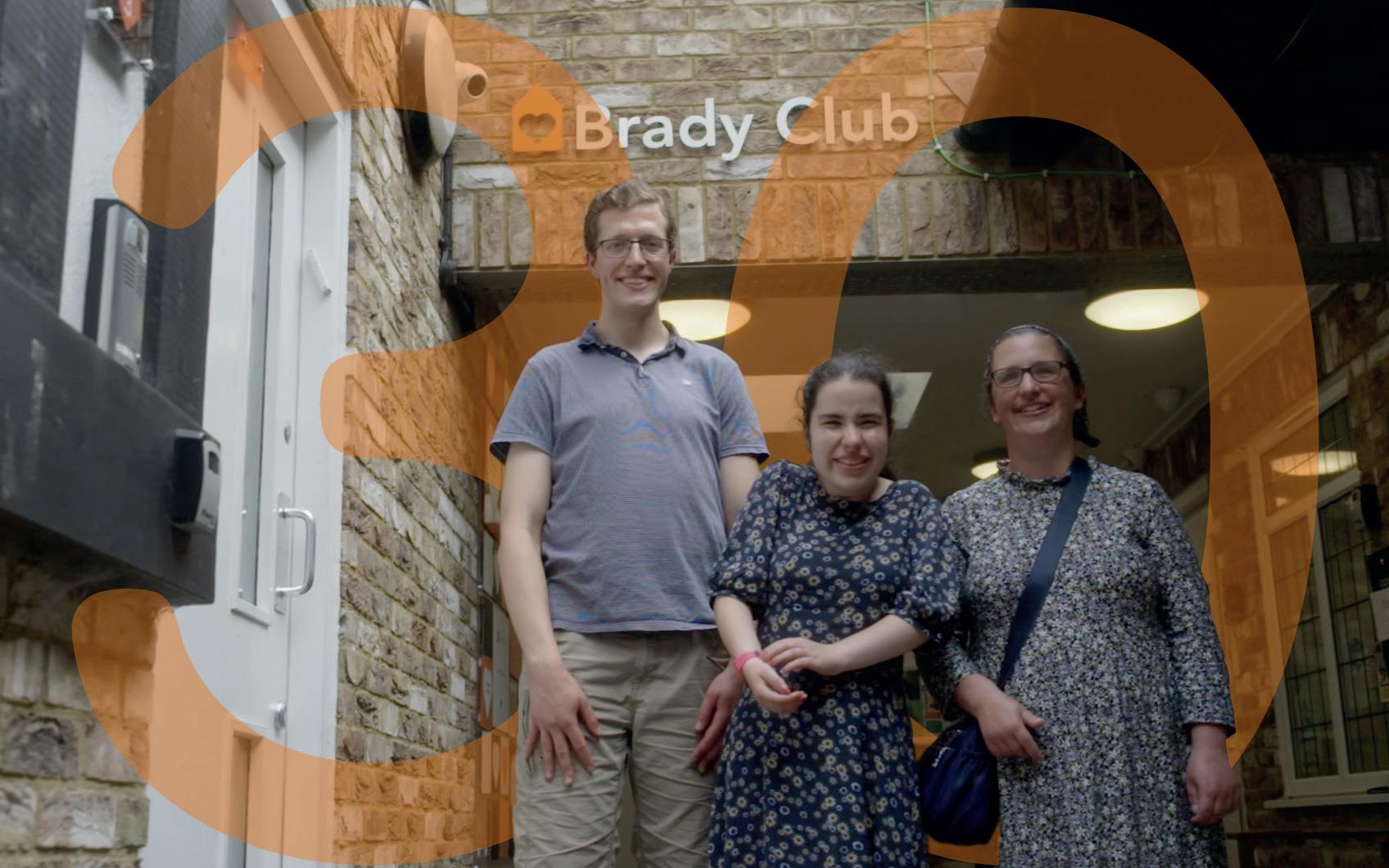

A nuclear deal with Iran is “not our focus right now”, the US state department has said, instead vowing to support the “bravery and courage” of Iranian protesters. Asked whether the US was still interested in pursuing nuclear talks, a spokesperson said the Iranians had made clear “this is not a deal that they have been prepared to make”, adding: “A deal certainly does not appear imminent. Iran’s demands are unrealistic; they go well beyond the scope of the JCPOA.”
Palestinian Authority president Mahmoud Abbas has told Russian president Vladimir Putin the PA does not trust the United States to be an unbiased mediator in any future negotiations. Talking at a sideline meeting at a conference in Kazakhstan, Abbas said: “We don’t trust America and you know our position. We don’t trust it, we don’t rely on it, and under no circumstances can we accept that America is the sole party in resolving a problem.”
An Italian Holocaust survivor has overseen the election of a man who collects fascist memorabilia as the next president of the country’s Senate, writes Michael Daventry.
Liliana Segre told senators of how she felt “disconsolate and bewildered” after she was forced to leave her school in 1938 after new antisemitic laws came into force.
The 96-year-old was presiding over the Senate’s first session since last month’s election in which right-wing parties – including one with neo-fascist roots – won enough seats to form the next government.
Segre was the only member of her family to emerge alive from the Auschwitz concentration camp at the end of the Second World War.
She made no public comment about the recent election but told senators: “It is impossible for me not to feel a kind of vertigo, remembering that the same little girl who on a day like this in 1938, disconsolate and bewildered, was forced
by racist laws to leave her school desk empty.
“And that same little girl today finds herself by a strange fate even on the most prestigious desk in the Senate.”

Segre received a standing ovation from senators before they voted to elected Ignazio La Russa, who owns a bust of wartime fascist leader Benito Mussolini, as

Hadassah Hospital’s mission is of peaceful coexistence, dedication to saving lives today, and finding medical solutions for a world of tomorrow.


Hadassah relies on your generosity, and depends on legacies no matter what size, to continue our work in healing, teaching, and creating innovation in treatment and breakthroughs in medical research.

the chamber’s next speaker. He presented Segre with a bouquet as he took her seat.
La Russa, whose middle name is Benito, is a senior member of the nationalist Brothers of Italy party led by Giorgia Meloni, who is expected to become the next prime minister.
A video posted in 2018 on the Corriere della Sera website of La Russa in his home showed he collected memorabilia of Mussolini.
Mussolini ruled Italy for more than two decades, allying it with Nazi Germany and enacting antisemitic laws that ultimately led to the deaths of nearly 6,000 Italian Jews in camps.
JN video report at jewishnews.co.uk
Stanford University in California has apologised to the Jewish community after a report found that the university had used admissions quotas to limit the number of Jewish students in the 1950s. The report, called A Matter Requiring the Utmost Discretion and produced by a task force, concluded that the impact “lasted for decades, largely refracted through the understanding, popular among Jews in Southern California, that Stanford limited the number of Jews it would admit”.
Australia has rolled back a decision made under its previous government to recognise West Jerusalem as Israel’s capital Canberra’s Department of Foreign Affairs has deleted two sentences addressing Jerusalem from its website added when former prime minister Scott Morrison announced the move in 2018. The now-deleted text described “West Jerusalem as the capital of Israel” and noted Australia “looks forward to moving its embassy”.
A festive concert celebrating the life of Stanley Lewis

on the




of his






 Steven LEAS Simon COHEN
Steven LEAS Simon COHEN
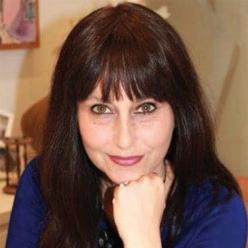



from







Hebron massacre in which 29 Palestinians died and more than a hundred were injured. As recently as two years ago, Ben-Gvir kept a photograph of Goldstein hanging on his living room wall.
The vast majority of British Jews are repulsed by these men. It is tragic enough that they hold seats in the most vibrant chamber of democracy in the Middle East, the Israeli Knesset. Worse is that their bloc’s electoral surge could equip them with real power.
Their alliance was forged in absentia by Benjamin Netanyahu, the opposi tion leader who hopes to return for another term as prime minister. An electoral surge next month would make ministerial jobs for both far-right leaders far more likely. Rumours suggest Ben-Gvir is being considered for justice minister. Smotrich has previously been transport minister, a relatively innocuous role, although he has coveted the Ministry of Diaspora Affairs.
It raises a question that British Jews have perhaps been ignoring for too long: how do we respond? There is no question of diminishing our support for Israel as a country, but for the first time we face the prospect of that country being rep resented by intolerance.
If Bezalel Smotrich or Itamar Ben-Gvir visits Britain as ministers, some of us might be tempted to overlook their views and welcome them as representatives of the State of Israel. Some may even encourage the British government to do the same. We must stand against that.
Hatred is a powerful tool. Jews need no lessons on what can happen when it is allowed to flourish. It is difficult to stand up to odious views from within our own community but that is why we must find the courage to do it.
Israel is on a dangerous path and we must not ignore it.
While we remember with pride the celebrated London-born actress Dame Angela Brigid Lansbury, it seems fitting to recall the Jewish first wife of Angela’s father, Edgar, son of George Lansbury – leader of the Labour Party in the early 1930s.

Minnie Glassman was the second of the seven children of the Polish-born Annie and Isaac Glassman, a boot finisher, living in Newman Buildings, Spitalfields.
Minnie became a teacher, enthusiastic suffragette, union activist, chairman of the War Pensions Committee for the First World War and an alderman on the first Labour-led council of the Metropolitan Borough of Poplar.
Imprisoned for six weeks in 1921, together with colleagues, for refusing to levy the full rates required for the area, she did not sur-
vive the pneumonia that developed as a result of her treatment by the authorities. News of her death was received with shock and grief at a meeting at the Bow Baths Hall, which had to be abandoned. She was buried in East Ham cemetery, aged 32, with a touching tribute by George Lansbury to his daughter-in-law.
There are several memorials dedicated to Minnie, including the Memorial Clock, now on Electric House in Bow Road, which was unveiled in October 2008 following a public appeal by the Jewish East End Celebration Society and English Heritage.
It is believed that Angela, who contributed towards the cost of the memorial, was proud of her Jewish stepmother.
The Jewish Genealogical Society of Great Britain

The furore over Liz Truss’s mention of the UK embassy possibly being moved to Jerusalem should be met by all justice-loving people with a laconic disregard.
Dividing the city again under any deal would confirm the fic tion that Jerusalem consists of two parts, Jewish and Arab, and would effectively reward the act of ethnic cleansing which promoted it.
The Palestinians have long denied Jewish history, claiming it to be a myth but appropriating its figures nevertheless. Myths are targeted for destruction. In their quest for religious supremacy the Islamists will stop at nothing. And one dreads to imagine what would happen to our holy places should they once again fall into the hands of an Islamic ruler.
Eda Spinka, Hendon
The latest outburst by the rapper Kanye West (currently known as Ye) must be condemned loud and clear.

Social media is being used more and more to megaphone and promote antisemitic views.
These coments, and the indi viduals involved, should be outed at every opportunity, as we have unfortunately learnt that any form of appeasement is regarded as a sign of acceptance and weakness.
Stephen Vishnick, Tel Aviv

Thanks for reporting on how the Israeli Red Cross is helping Syrian refugees in Jordan. This should be known more widely.
 Maurice Ederman, Southend
Maurice Ederman, Southend
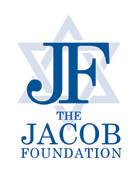
Thank you for helping to make Jewish News the leading source of news and opinion for the UK Jewish community.
Unlike other Jewish media, we do not charge for content. That won’t change. Because we are charity-owned and free, we rely on advertising to cover our costs. This vital lifeline, which has dropped in recent years, has fallen further due to coronavirus.
Today we’re asking for your invaluable help to continue putting our community first in everything we do.
For as little as £5 a month you can help sustain the vital work we do in celebrating and standing up for Jewish life in Britain.
Jewish News holds our community together and keeps us connected. Like a synagogue, it’s where people turn to feel part of something bigger. It also proudly shows the rest of Britain the vibrancy and rich culture of modern Jewish life.
You can make a quick and easy one-off or monthly contribution of £5, £10, £20 or any other sum you’re comfortable with. 100% of your donation will help us continue celebrating our community, in all its dynamic diversity.

Support Jewish News by visiting our donor page at jewishnews.co.uk





The £30,000 reward an nounced by Jewish News and others for information leading to the arrest of those responsible for the Chanu kah bus attack is a good initiative but should not have been necessary. The police hardly need any more criti cism but their performance in this case leaves them open to it.

It appears the inquiry into the attack was quietly dropped months ago. When this came out, as such things do, the Met’s first reaction was to say the story was un true, a claim later recanted. Is it any wonder our faith in justice is ebbing away?
Linda Shaw, St Albans




 JENNI FRAZER
JENNI FRAZER
Ihad planned to write something this week about the forthcoming Israeli elections, but quite honestly I haven’t the heart. All I’ve seen are increasingly depressing images of that lunatic racist Itamar Ben-Gvir stirring up trouble, and a manically grinning Netanyahu doing the rounds of American chat shows and getting knee-jerk responses from ignorant studio audiences. Even Bibi can’t believe there are many votes there.
Instead, I would like to commend for your attention the increasingly impressive British diplomat Melinda Simmons, Britain’s woman in Ukraine.
Her Excellency, who spent a year learning Ukrainian before her posting as ambassador in September 2019, has the country in her blood — almost literally.
She told Jewish News: “My great-grandparents were born and raised in Kharkiv, Ukraine. My great-grandfather moved first to Kyiv and then to the US. My great-grand-










mother, for reasons we don’t know, went from Kharkiv to Cardiff.”


Unfortunately, because of the Russian invasion in February this year, the names of cities such as Kharkiv have become depressingly familiar to British readers.




Simmons — almost uniquely for a British diplomat — makes no secret of her strong Jewish identity. I say almost, because the ground-breaker in this regard was, of course, Britain’s former UK ambassador to Israel, Matthew Gould.

Perhaps Gould’s uncompromising Jewish profile made it easier for Simmons, who, when she embarked on her Ukrainian role, could have had no idea of the pivotal importance of her ambassadorship.
Long before her diplomatic career began, the future envoy was a “macher-in-themaking” as an MOP — Member of Praesidium — of the European Union of Jewish Students. She helped to make EUJS policy and it became clear, even in those days, she was someone to watch.







She moved up the diplomatic ladder gradually, marrying along the way and having












a family, and — though raised originally in a United synagogue home — becoming a enthusiastic member of Finchley Reform Synagogue, a community with which she has said she felt very comfortable.








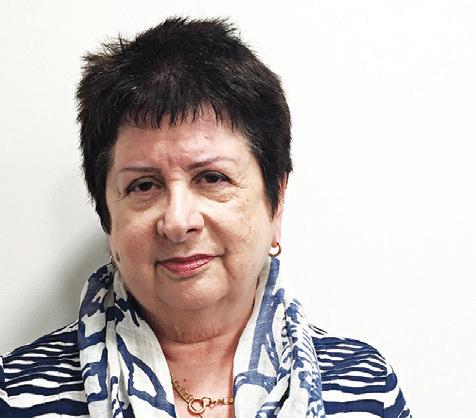
Of the many qualities asked of an ambassador, personal physical courage is not often high on the list, unless the diplomat in question is posted to a hotspot country. That was not the case for Ukraine in 2019 but it certainly became so in February 2022 when Russian tanks and missiles bombarded Ukrainian cities, particularly the capital, Kyiv.








Simmons and the embassy sta very briefly left Kyiv in February and departed the country in March. But by the end of April, she was back in play in Kyiv, and is said to be greatly admired by President Zelensky for her decision to stay put in the capital, while
fellow diplomats, from countries such as the USA and Australia, had departed, to run their embassies remotely.


Ambassador Simmons is a calm and pragmatic presence at the British Embassy in Kyiv, maintaining a high profile on social media. At the beginning of this week she posted a Twitter picture of herself in the Ukraine capital, shaking the lulav for Succot.
“During a war,” she wrote, “these traditions are more meaningful than ever.”
So Britain is extremely lucky to have a tough, brave and smart Jewish woman representing our country’s interests in Ukraine. We can be justly proud of her.
The more I think about it, the more I think she’d make a brilliant successor to Neil Wigan in Tel Aviv.

How about it, dear Foreign O ce?


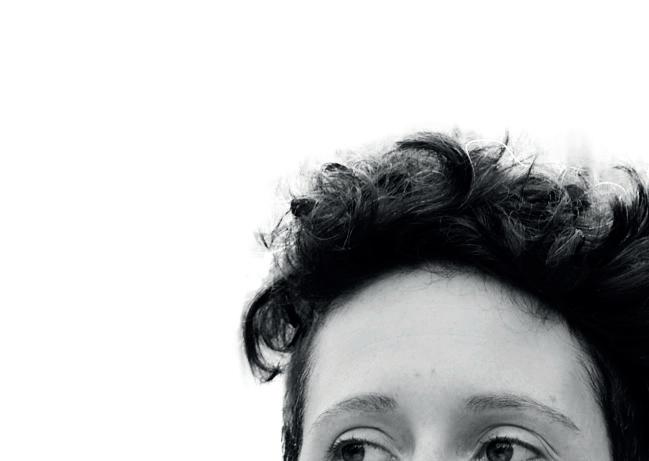



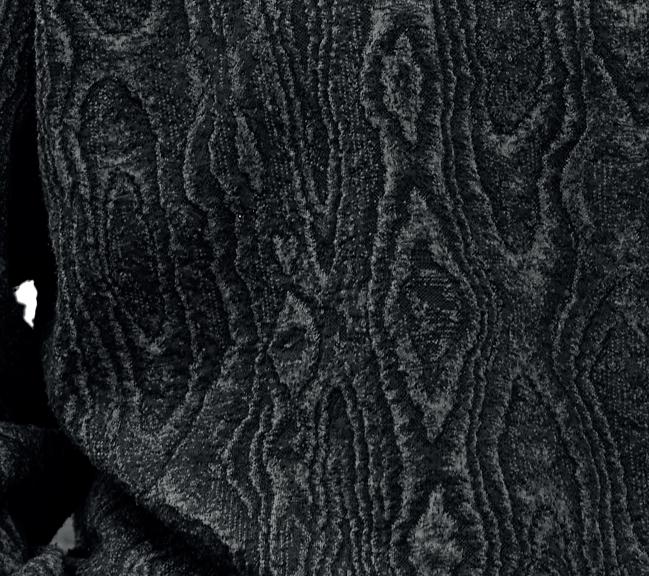



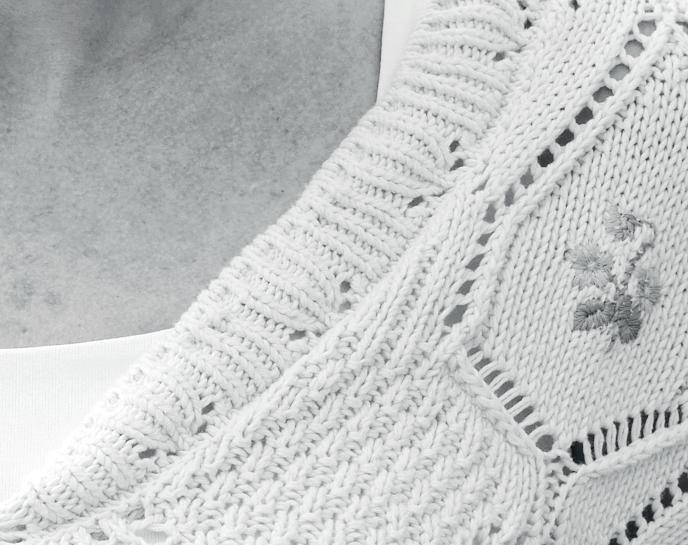
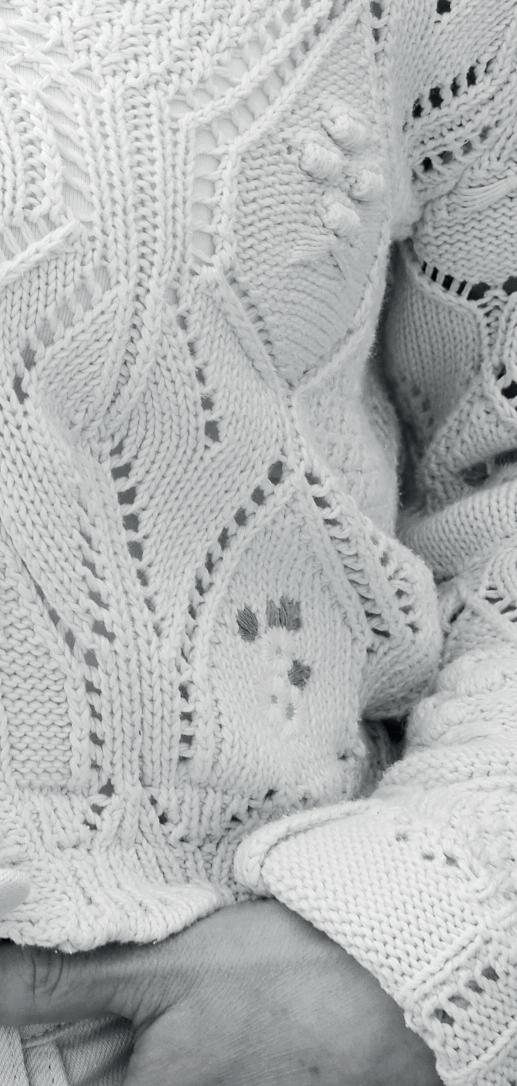




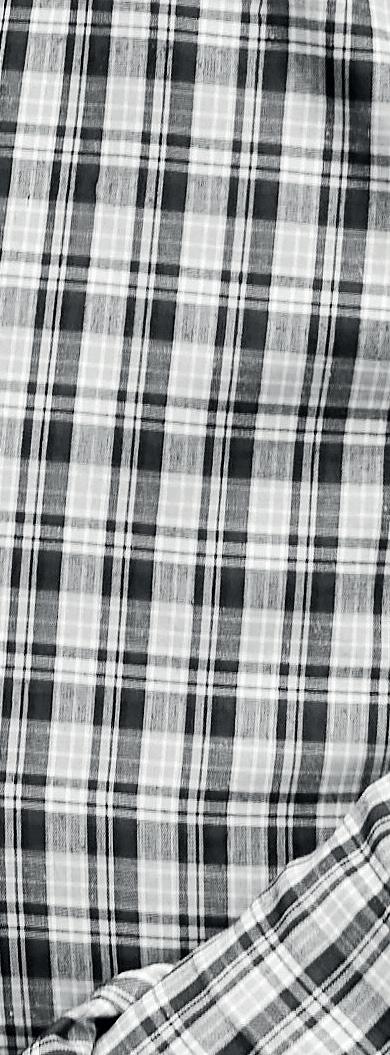

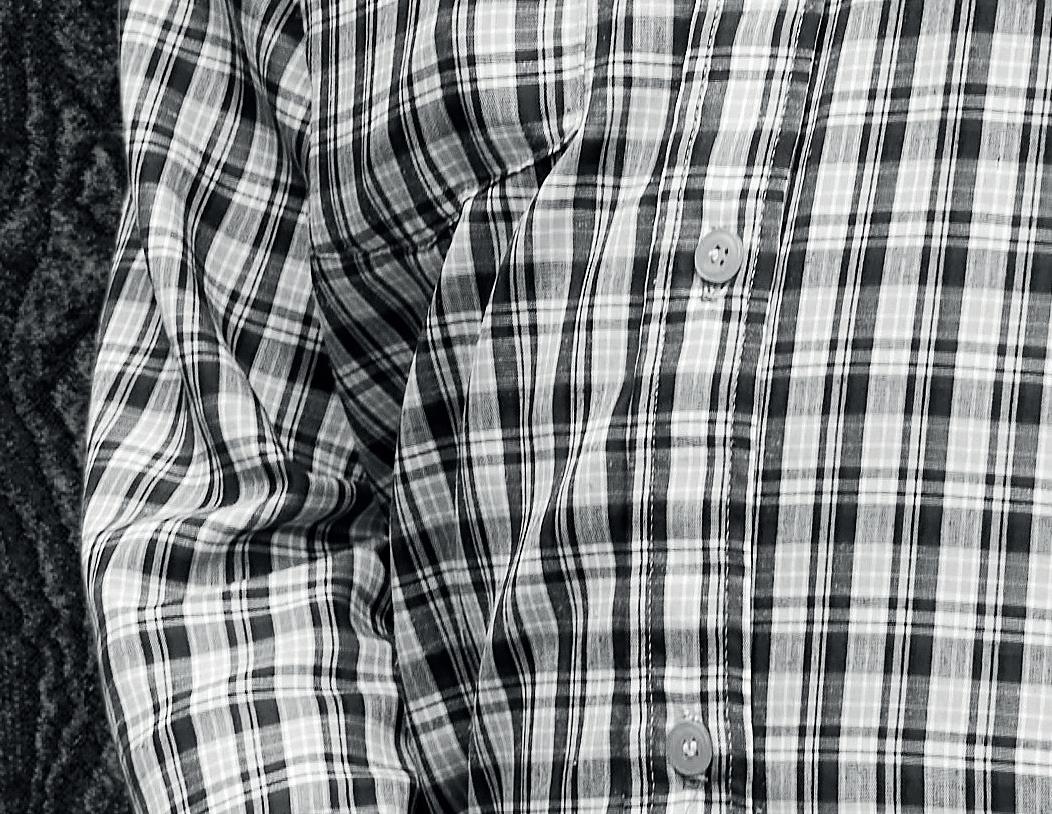






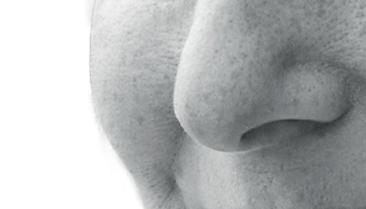






Mental health support when you need it
Jami’s latest campaign aims to improve understanding of mental health, how it impacts each of us, the importance of getting help when it’s needed, and what we can do to support others. And, not surprisingly, it comes at a time when demand for mental health support within the community is higher than ever.
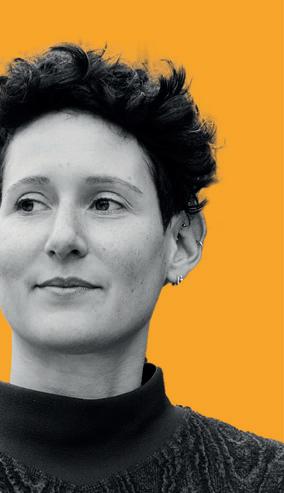

As the leading charity delivering mental health services in the Jewish community, our Understand Mental Health campaign explains some of the symptoms of mental illness and the impact on people struggling with these problems, told through reallife experiences. We also showcase some of the ways in which we help adults, children and families to manage their mental health problems.
After years of raising awareness about mental health and its impact on people’s lives, through events such as the annual Jami Mental Health Awareness Shabbat, we felt it was time to increase the community’s understanding of mental health.
Laurie Rackind, Jami’s chief executive, explains:
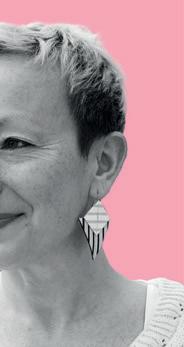
“Many of us have become much more aware of our own mental health and its importance to our overall wellbeing, but we need to know that at any given time at least 25 per cent of us are actively dealing with a diagnosable mental health problem. Developing our understanding about mental distress and the impact it




has will enable us to better recognise how our family, friends or colleagues may be feeling and make ourselves available to listen, support and signpost to professional services as best we can.”





Over the past two-and-ahalf years, Jami has seen an increase of more than double the hours of support delivered in response to the Covid crisis, a trebling in demand for help from our Carer and Family Support service, and twice the number of requests for support from young adults. As a result, our lifesaving services have had to expand and adapt to meet the growing needs of the community.
Building works are well underway to expand Jami’s Head Room café in Golders Green, which provides informal and inclusive mental health support on the high streetread more on page 7.
In response to the rise in children’s mental health problems and the lack of available mental health services for them, we launched our Children and Young Person’s (CYP) service in March 2022. Using a multiskilled team, consisting of social workers, mental health practitioners, a mental health
support worker and a young people’s education officer, Jami’s CYP service is now providing tailored one-toone support to many young people of secondary-school age.
However, often the easiest way to understand something is to see it in action. So while our Understand Mental Health campaign should hopefully go a long way in clarifying in people’s minds what mental illness means and how Jami can help, our services on the high street, in our hubs and in schools already speak for themselves.








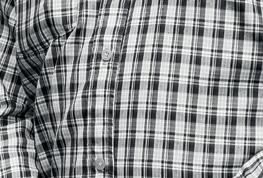
In 2021, one in six children had a probable mental health condition. Children with mental health problems can have issues at home, in school, and in forming friendships. Mental health issues can also interfere with a child’s healthy development, causing problems that can continue into adulthood. This is why early diagnosis and treatment is vital.
Every child feels low, anxious or angry at times. These emotions may only become worrying if they last for a long time or seriously affect their behaviour. Some of the most prominent signs that a child is really struggling are excessive weight change, disturbed sleep patterns, tearfulness, little energy, irritability, increasing social isolation or showing little pleasure in activities they used to enjoy. Challenging behaviour can also be a sign that a child is feeling very anxious and could be their way of communicating that they’re not OK.
For older children, it can sometimes be difficult to recognise what ‘normal’ adolescent behaviour is and what it isn’t. However, depression and anxiety, low self-esteem and confidence, body image issues and disordered eating, are all traits to look out for.
Abigail Swerdlow, specialist registrar in child and
adolescent psychiatry at the Tavistock and Portman NHS Foundation Trust and trustee and co-chair of Jami’s clinical governance committee, says: “Over the past few years there’s been a significant increase in children experiencing mental health difficulties and subsequently a surge in the number of referrals to CAMHS. Waiting lists for these services and for specialised assessments and interventions are growing.”
To address this rising need, Jami set up its Children and Young Person’s (CYP) service in early 2022. Through a dedicated CYP multi-skilled team, we offer services geared specifically to 11–18-year-olds, including tailored one-to-one support to help them manage their symptoms, develop coping strategies, boost their self-esteem and establish
structure in their lives. The service also offers wellbeing support, ongoing assessments to ensure children receive the most appropriate support for their needs, assistance to help children access further support in the community, and support to liaise with the child’s school and other people involved in their life, such as their GP.
In the meantime, parents and carers can also make a positive difference. Because children’s mental health suffers the most when they’re suffering in silence, we need to encourage our children to share their worries with us or another adult close to them, without judgement or fear. That’s not always easy, but just letting them know that they’re not alone is a comforting place to start.
Take a look at what we have to offer whether you’re booking on to an event, or hosting us in your community.
To find out more or to book your place visit jamiuk.org/education
Wednesday 7th and 14th December 2022, 6.30–9.30pm Wednesday 10th and 17th May 2023, 6.30–9.30pm
Cost:
Since the pandemic there has been an increase in concern around young people’s mental health in our community. If you are a parent, teacher or youth worker and want to learn more about a variety of mental health problems and increase your confidence in supporting young people, then this is the course for you.
This training is CPD accredited and internationally recognised. Each participant will receive a certificate, a workbook and a manual to refer back to.
Join us on this one-day course to train as an MHFA Champion. This course gives you an understanding of common mental health issues; knowledge and confidence to advocate for mental health awareness; ability to spot signs of mental ill health, and skills to support positive wellbeing. You will get a certificate of completion and an extensive manual to refer back to. The course is ideal for anyone looking to learn practical skills to support others experiencing mental illness and distress, in your community or workplace.
Join us to increase mental health knowledge and understanding to enable community members to respond appropriately to those with mental illness or distress. Explore how to create a more skilled and compassionate community, able to listen effectively and respond sensitively. We’ll acknowledge the impact Covid-19 has had on our communal and individual mental health, while gaining new skills to support ourselves and others.
Night School is the perfect opportunity for the wider community, who identify as peers, to get involved in Jami education.
Join us to explore a range of diverse topics which bring together lived experience, academic research and reflections in the zeitgeist. In the new academic year, we’re
excited to offer a new range of fresh and innovative topics for discussion run by peer educators and designed to bring together like-minded people to talk about the things that matter.
Monday 7th November 2022, 7:30–9:00pm
Radical Self-Acceptance is when an individual accepts all the parts of themselves, both the positive and negative aspects of who they are. Such moments may feel rare. So, is radical self-acceptance an achievable goal? Can we learn to be content with who we are and accept being ‘good enough,’ instead of striving for possibly unattainable perfection? Join us to consider how we can focus on the present and recapture that state of mind, when we feel in balance and true to ourselves?
Monday 12th December 2022, 7:30–9:00pm
Social anxiety has entered our language as a synonym for being shy or not enjoying large groups. Since Covid-19, it’s something that many more of us may feel familiar with. Join us to consider what social anxiety is and the pathways to support ourselves and each other.
Monday 21st November 2022, 7:30–9:00pm
Empathy or compassion fatigue can occur when we care or support others, particularly when we neglect our own needs or they become secondary. What are our experiences of empathy fatigue? How may it impact us? And how do we make time for ourselves when we’re looking after others?
Compassion fatigue was first studied over 30 years ago by Carla Joinson in her seminal work “Coping with Compassion Fatigue” which she first observed in her nursing colleagues. Empathy fatigue is the result of prolonged stress resulting
Empathy or compassion fatigue is beginning to take its place in our zeitgeist. But the conversation is just beginning. Perhaps you’ve heard of it or experienced it?
from caring for others. And, when the cost of caring becomes too much, it can leave us feeling depleted and potentially unable to have empathy for others.
Empathy fatigue is particularly common in caring professions,
but it’s increasingly acknowledged that any of us could experience it. Many of us may be caring for one or more people in our lives. The sandwich generation are those caring for children and elderly parents simultaneously.
Others may have personal and professional caring responsibilities. Whatever our current caring situation, finding the balance when it comes to empathy is important.
Empathy may feel like the most natural thing in the world to some of us. We’re likely to be natural givers – very good at saying yes to others, but not always great at saying yes to ourselves.
But we need to recognise that empathy isn’t always easy. When we talk about giving to others, we often think of our time and money. But many of us give our empathy as well. And when we do this, it can
If we’re finding it hard to summon our empathy, it may be time for an empathy audit. Write down or think about all the aspects of your life, both professional and personal, that require your empathy. Consider whether you can step back from any of them. This doesn’t mean stopping support but thinking about whether other people can step up so you can step back.
Robust boundaries are vital for healthy relationships, but
have an impact on our own mental health. There is always a cost to caring.
We may experience empathy fatigue if we begin to feel numb or disconnected from others. We may also start to
isolate ourselves or experience feelings of self-blame, guilt, overwhelm or other emotions, such as sadness or anger. Fatigue, lacking energy to care for others and negative thinking are also common.
Our bodies can also take the brunt of empathy fatigue as we begin to feel the kinds of aches and pains we might associate with being stressed.
We may also want to try out some of the tips below.
particularly if we are giving empathy often. Our boundaries don’t have to be punitive; it doesn’t mean withdrawal of care. Rather, consider if anyone is expecting more from you than you can give. Ask who else could provide support or whether a healthcare professional needs to be involved.
Lives can change quickly and at times our empathy may need to be re-routed. Our capacity for empathy may not always be the same. To safeguard our mental health and avoid empathy fatigue, check in with our mental health and consider the current pressures or responsibilities we are managing. This ensures we
don’t expend more empathy than we give. If we start to feel overwhelmed, fatigued, stressed or have difficult emotions, it may be time to recognise we are at our limit and change is needed.
At times, people may need more than we can give and will need to seek other avenues for support. We can signpost to various healthcare professionals and voluntarysector organisations. But it’s worth considering what self-care or extra support we may need to keep us robust enough to offer empathy. It may be that when we give empathy, we may also need to receive empathy in return.
We can consider who is in our support network and whether we need to expand it to include professionals or organisations. Evaluating our self-care routine and whether we need to add to it can also be helpful.
For free, safe and confidential online counselling and emotional wellbeing services for adults, contact Jami Qwell at www.qwell.io/jami.
For sessions on Empathy Fatigue and Asserting Boundaries, sign up for Jami’s Night School online programme, run by peer educators with lived experience, at jamiuk.org/nightschool
When Jami’s Head Room café in Golders Green reopens in the winter after temporarily closing its doors, customers will be in for a treat. And we’re not just talking about the new-and-improved menu on offer.

Laurie Rackind, Jami’s chief executive, says: “Head Room is much more than just a café. It’s a real community hub on the high street but it simply wasn’t big enough. There was neither sufficient space to deliver all the groups we want to run nor adequate room to be able to collaborate with other organisations and deliver community support. On top of this, we also cater for people who pop in to enjoy really good food and drink. Ultimately, we just needed to make the existing space bigger and better, so that many more people in the community can benefit from everything Jami’s café has to offer.”
Building work began in July to extend the café into the premises next door, making it a much larger space for visitors to enjoy. Once complete, the café will have a bar area at the back and three semi-soundproofed meeting rooms. Two more accessible toilets have been added and the kitchen is being completely renovated and enlarged to enable it to offer better menu options. Sticking to its roots of MiddleEastern inspired food, the café’s vibrant sharing plates and hearty, fresh salads will take centre stage on the food menu with a wider variety of fresh juices and smoothies


added to its drinks menu.
There will be sofas for lounging as well as tables for dining, and one wall will feature photos and video content. Indeed, once the café reopens, two highdefinition TV screens, as well as a screen in the window, will play content even when the café is closed. The outside of the café will look different too, with new signage and awning to complement the updated interior.
Perhaps most importantly, increased space at the café means that more events and activities, geared around supporting mental health, can now be delivered. For starters, Jami’s free peer-support programme, available Monday to Friday and open to everyone in the community, will be offering three more, two-hour sessions each day for up to 20 people. Currently, these include everything from Community Conversations to the Community Walking Group; and from Kind Coworking to the Coffee & Connect sessions. There are also writing and art activities, peer support groups and bite-sized wellbeing sessions available.
Karen Conway, who facilitates many of these groups, says: “One of the ultimate things we do at the café is reduce
isolation and loneliness by bringing people together and giving them a sense of purpose. We’re about building connections and building relationships. Some people may be customers who are just walking in off the street. Others may already be using Jami’s services. We’re completely inclusive.”
Her goal, together with the rest of the Head Room team, is to build a community around what Jami does and to develop new groups for people to attend, which will now become easier with the increase in space. “We see people create friendships through the groups and do things outside of the café
together,” she says. “The fact that some people have been coming to everything we offer also shows that they’re getting something from our sessions. I know that they feel they can come as they are and not feel judged.”
In addition to bringing awareness, education and access to mental health support to the high street, the café will also have capacity to entertain greater numbers, including private events and catered business meetings, once it reopens. It won’t be long and the wait will be worth it, when Head Room serves up an even tastier menu in a larger, livelier and more laid back space.
aren’t something you have to
with alone.
visit jamiuk.org/get-support or call 020 8458 2223
For immediate help, contact Shout’s 24/7 crisis text service. Text Jami to 85258
 FORMER MINISTER FOR MIDDLE EAST & NORTH AFRICA
FORMER MINISTER FOR MIDDLE EAST & NORTH AFRICA
Israel’s voting system has long been an object of fascination. A PR system is massively inclusive, but at the same time produces coalitions so inherently unstable that collapsed governments are an increasingly likely. A fundamental rule of foreign a airs is that those in liberal democracies do not seek to influence elections in other countries. This must be right, not least for the fact that such interventions are usually counterproductive. But if it is wrong to influence an election somewhere else, which is not my business, recognising votes cast abroad in those elections have consequences, and making that clear to my own Government, is very much my business.
This has come to light in the wake of recent comments by the very senior, pro-Israel US politician, Senator Bob Menendez, who chairs the influential Foreign Relations Committee of the US Senate. Menendez, in unretracted
reports, apparently warned Benjamin Netanyahu against the inclusion of far-right party leader MK Itamar Ben Gvir in any coalition government. The claim is that Netanyahu needs every possible combination of parties and seats to join his Likud coalition to win the forthcoming election, even from those he rejected in the past. This would include Gvir’s party, currently running in a joint list as Religious Zionism and, according to some polls, is set to win some 13 seats – a key component of the 61 seats needed for a Knesset majority. Menendez warned that his inclusion in Government would harm US-Israel relations.
Gvir needs little introduction. A past follower of rabbi Meir Kahane, he was convicted of racism in 2007 and has a long record of aggressive politics and gestures, turning up last weekend in Sheikh Jarrah brandishing a gun. He has politically teamed up with MK Bezalel Smotrich, the political leader about who the Board of Deputies tweeted earlier this February, attacking his “abominable views and hate-provoking ideology” and calling for him to “get back on the plane” and leave the UK.
An MP called for the Home O ce to intervene. Religious Zionism, according to Smotrich this week, predicts up to five portfolios for the party and is interested in defence, finance and justice.
There has been predictable concerns in some quarters that Menendez broke the rule of commenting on someone else’s election. The row should not be why he and some others spoke out, but why there should be any concern about speaking out. The same should apply here. We are entitled to consider what our Government would do when faced with a
government containing elements which the UK considers harmful. Protecting the UK’s reputation is our business.
The relationship between Israel and the UK is a strong one and deeply felt. But there are current elements which cause strain, which the UK Government notes. Frankly, it’s getting worse. This is not just the UK talking. The attitudes and activity associated with these individuals is causing heartache to Israelis abroad. It is di cult to see how the addition to the Israeli Government of those with the backgrounds above could add positively to a relationship where a degree of mutual understanding and trust in di cult times is crucial.
My Israeli sources are mixed as to the chance of Gvir and Smotrich getting their way. Some think their path to Government is certain, because of numbers. Others say Netanyahu is using the possibility to warn others that Israel would risk being a pariah if he had to take them into Government, boosting his chances of securing power again with a more moderate coalition. We do not know the outcome, but the risks are there for all to see.

THE UK-ISRAEL RELATIONSHIP IS STRONG BUT THERE ARE STRAINS AND IT’S GETTING WORSE
❝
Bar and Bat Mitzvah Project ensures that young people, on their special day, can share it with a child Holocaust victim who was denied a future. Over the past 10 years we have twinned over 1000 children. Complete the on-line Twinning Form and researchers at Yad Vashem will use the information to find a suitable twin.













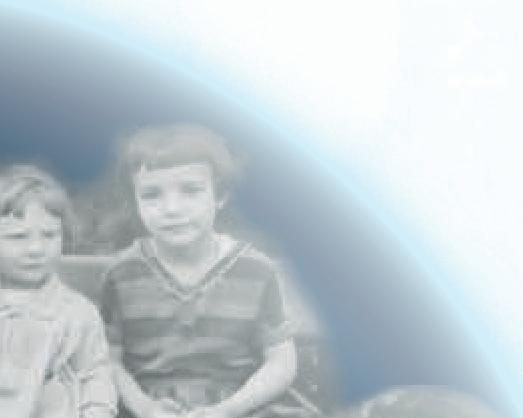




Celebrants will receive a comprehensive Twinning Pack which contains:
A Page of Testimony, with details of your chosen twin
Study Guide

Certificate


letter from a Holocaust survivor










Yad Vashem pin


Memorial and Shabbat Candles
















An invitation to become a Guardian of the Memory

















office@yadvashem.org.uk www.yadvashem.org.uk www.guardianofthememory.org

















Milena Markovna was seven when she arrived in America on a refugee visa. Growing up in Chernivtsi, Ukraine, with older brother Michael, the little girl who would become A-lister Mila Kunis was largely oblivious to the antisemitism that drove her parents to leave their homeland for a better, safer life in 1991.

“We were Jewish,” she told US radio host Howard Stern, without mentioning the memories of swastika gra ti that stay with her.

Now, as the most famous Ukrainian after president Volodymyr Zelensky, Mila has used her star status to spotlight the plight of her war-torn birthplace to raise donations for aid. That the figure currently stands at $36m – $3m of which was contributed by the actress and her actor husband Ashton Kutcher – is a testament to her dedication. Propelled by public praise from Zelensky for being “among the first to respond to our grief”, Mila uses every interview and junket as a segue to her Ukraine fundraiser and her latest role in Netflix’ Luckiest Girl Alive is controversial enough to create the necessary interest.


With some viewers saying it should come with a trigger warning,the film is based on Jessica Knoll’s best-selling semi-autobio-

graphical novel, and casts Mila as a successful New York writer plagued by a harrowing high school history that made her a victim of violent rape.
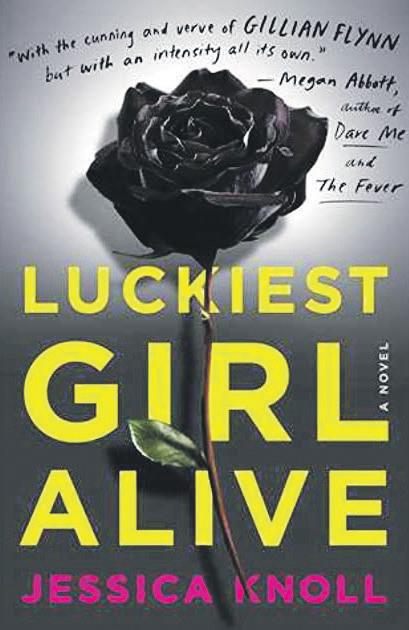

“I hate being the person who says, ‘I hope this starts a conversation,” says Mila, who also produced the film. “However, I do hope the film opens up people’s minds to being more empathetic towards what’s happening in society and to uncomfortable conversations, with oneself, peers and others.”
Hard-hitting and impactful, the role is a departure for Mila, who began her career as the cute kid in Barbie commercials before graduating to teen roles, notably in That ‘70s Show in which, as Jackie Burkhart, she had her first sort-of screen kiss – “on the cheek” –with co-star and future husband Kutcher.
With a resume that includes the films Forget-
ting Sarah Marshall, Friends With Benefits and Black Swan – for which she received many award nominations for playing Natalie Portman’s ballet dancer nemesis – Mila can pick her projects, especially now she’s a producer.

That she continues to voice unfortunate daughter Meg in Family Guy and is reprising her role as Burkhart in the new That 90s Show (15 and a half years after That ‘70s Show ended) shows her penchant for comedy and all of it thrills her father, Mark. Arriving
in New York with $890 to keep a family of four and two grandparents, the former engineer did menial jobs, but managed to pay for the acting classes he felt Mila deserved. “And they never took a dime from me even though I had money,” reveals the actress, who still speaks Russian to her parents.
“From all the jobs I got I would never have blamed them if they had taken money, but to this day they are really stubborn about it, and if we go out for my dad’s birthday,
he calls the restaurant before and gives them his card.” Mila’s mum also does a weekly food drop for her daughter laden with pickled herring, borscht and chicken soup.

Now a mum herself, to daughter Wyatt, eight, and son Dimitri, five, Mila was brought to tears this year during a TV interview with Josh Horowitz when she talked about telling her children about the war in Ukraine.

“My daughter punched the air after computing that, ‘There’s a war in Ukraine? Aren’t you from Ukraine? Well I’m HALF Ukrainian!”
While it would be easy to cite hatred, Mila doesn’t feel the Russian people are the enemy. “Rather than that become the rhetoric, it’s more the people in power that are the problem.”
What Mila has not been allowed to give her parents, she now gives to Ukraine and the still-active GoFundMe page has helped Airbnb and Flexport to help refugees leave Ukraine and continue to support those who remain. Unbelievably, Mila and Ashton were almost destined to be involved in the crisis as some years ago they met with Zelensky and his wife Olena and got very positive feelings.
“Sometimes you meet a magical unicorn, and you go, ‘I hope that you succeed because you’re a normal, nice human being who has the best intent,’” says the actress. Takes one to know one.

No one could accuse Nica Burns of holding back when it comes to opening new stages. The Jewish theatre superstar already co-owns and operates six venues in her Nimax group, but now she has performed a near-miracle and opened the first new-build West End theatre in 50 years. @sohoplace opened last week despite all the di iculties presented by the redevelopment of Tottenham Court Road station. The auditorium actually sits directly above the new Elizabeth Line, but tube noise was no match for Nica, who has the Vaudeville (home to Six until 29 October, then 42 Balloons) the Palace (Harry Potter and the Cursed Child) and the Apollo in her stable. @sohoplace not only boasts wonderful acoustics and perfect sightlines from every seat, it has opened with the aptly-named play Marvellous, based on Neil Baldwin’s memoir about overcoming his learning disabilities to lead an adventure-packed life. Marvellous runs for six weeks until As You Like It comes in on 6 December, but Nica has chosen to run the venue as a not-for-profit with earnings going back into @sohoplace. For that, she deserves a standing ovation. sohoplace.org



If you’re the sort of artist who needs inspiring surroundings, setting up your easel in Marc Chagall’s old house might suit.
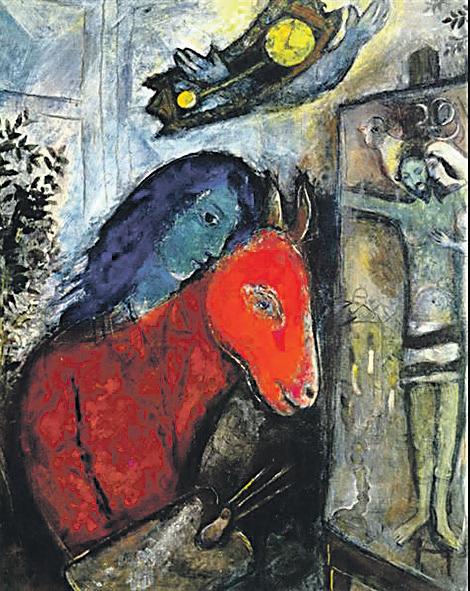
Typically in penury, most creatives couldn’t a ord to live in the home of a famous painter, but Chagall’s house in High Falls, upstate New York, is on sale at a bargain £212k. It is only a two-bed-one bath, but think what you could achieve in this shingle house on half an acre. Chagall shared the property with his much younger lover, Virginia Haggard McNeil, an artist and British diplomat’s daughter who had been his housekeeper in New York City. Chagall had lost his wife Bella when he moved there, so it was a time of sadness, but a prolific period for work as he produced 100 paintings including Self Portrait with Wall Clock. The Belarus-born artist was also visited by the FBI at the house because of his le ist politics, which led to him being denied a visa. Understandably, Chagall sold the house in 1952 and moved back to France.


A never-before-exhibited painting by British Jewish artist Mark Gertler (1891- 1939) is being auctioned at Chorley’s later this year and is expected to fetch up to £8,000. Still Life with Earthenware Vessel and Blue Ewer has been in the private collection of art connoisseur Lt Colonel Murray ‘Victor’ Burrow Hill, DSO, MC (1887-1986) for over 100 years. It is believed Victor may have acquired the work directly from the artist in the year it was painted, which was during Gertler’s stay with fellow artists in France in 1922.


Gertler was born in Spitalfields to impoverished Polish Jewish immigrants. He took night classes in art at Regent Street Polytechnic before winning a national art competition that would inspire him to apply for a scholarship from the Jewish Education
Aid Society. On attaining it, he was able to study at the esteemed Slade School of Art. Although highly accomplished and having several patrons, he spent much of his life juggling his finances and in mental despair. He had an unpredictable, slightly arrogant personality – after a visit to Virginia Woolfe in 1916, she exclaimed: “Good God, what an egoist!” Despite this, he was much admired and was the subject of many characters in books, such as Loerke in D H Lawrence’s Women in Love. He died by suicide in 1939.
See Auschwitz as you’ve never seen it before in a new exhibition. Seeing Auschwitz is a collection of 100 photographs of the camp, with an audioguide that includes survivor testimony. The images, captured by perpetrators, victims and liberators, provide stark evidence of mass murder, as well as showing the humanity of the people who died there.

Lead curator and a leading expert on the Holocaust Paul Salmons says: “They look like faithful portraits of an instant, but these photographs are not neutral sources at all – we are looking at a piece of reality but seen from the Nazi perspective. It is necessary to stop and analyse them to really see what each image truly reveals, not only about the place and the moment, but also about their own authors, the people portrayed, and even about ourselves as viewers.”
Seeing Auschwitz is at 81 Old Brompton Rd, South Kensington, London SW7 3LD. seeingauschwitz.com
PAINTERKnown locally as the artist who captures people, Barbara J Lewis has travelled further than Belsize Park with her most recent work, Service! The large painting is of the frazzled chefs in the kitchen of Michelin star restaurant Theo Randall at the Intercontinental. Barbara, who trained as a portraitist in Florence, is available to paint you in your kitchen should you fancy. Find her on Instagram: @barbarajolewisart
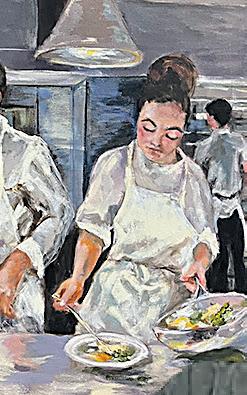


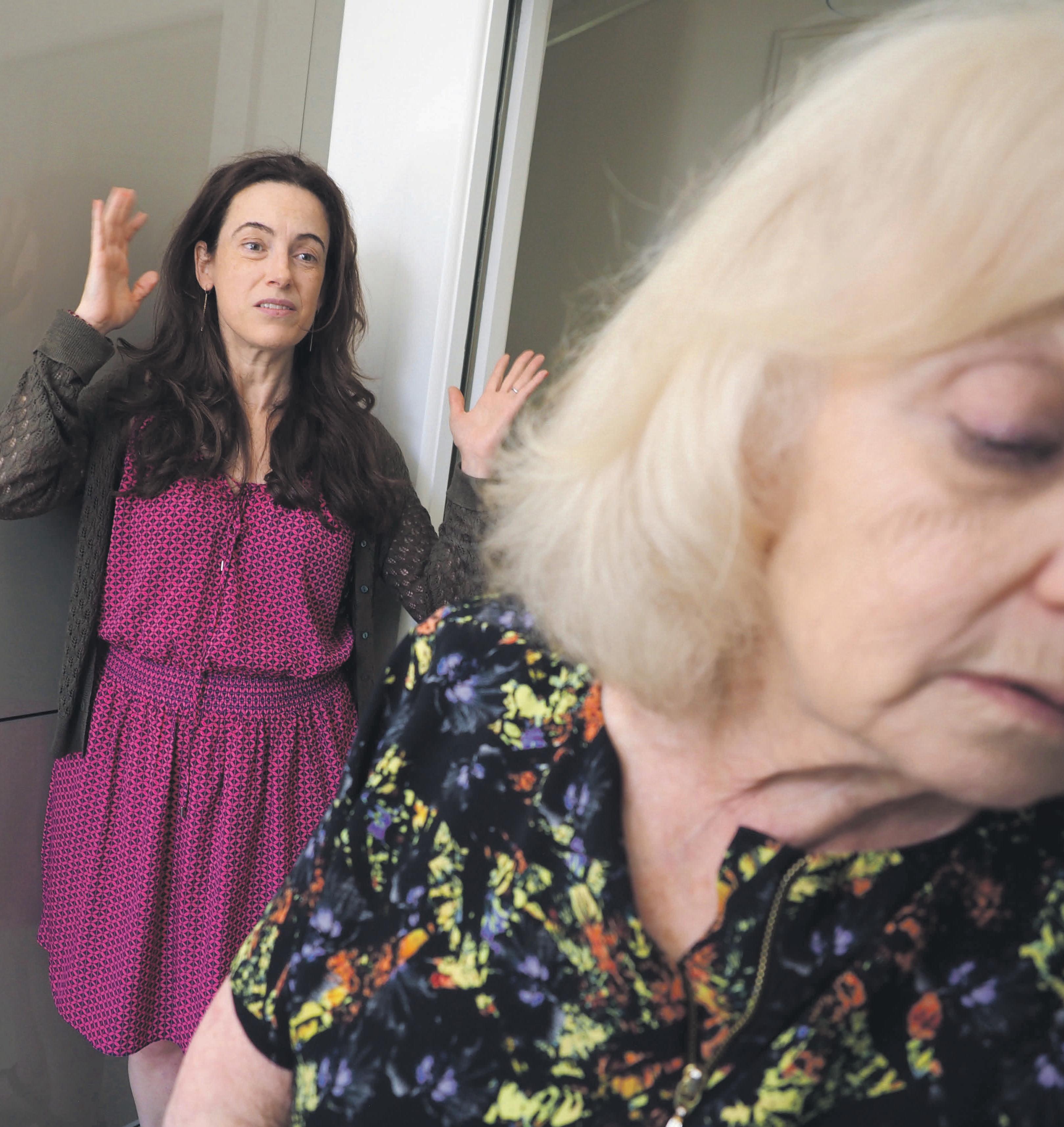




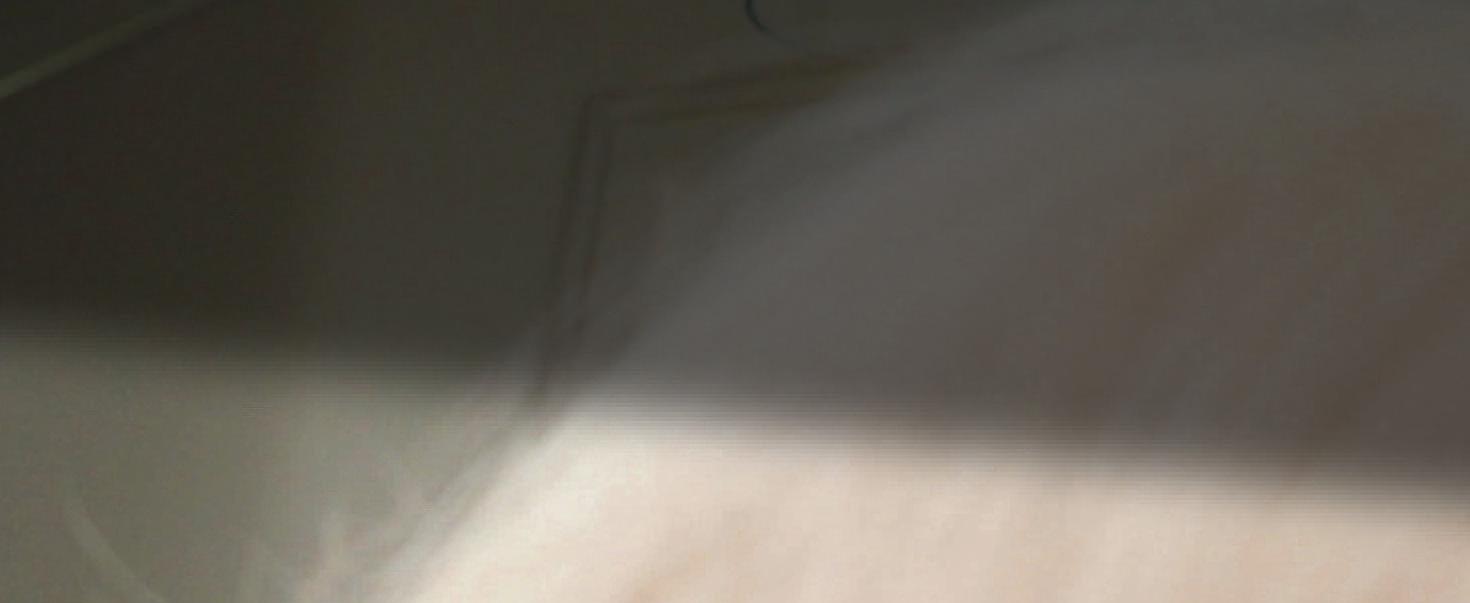



Shouting matches between medical professionals and clergy are thankfully rare, but the noisy clashes that take place on stage in The Doctor, the contemporary hospital drama that has now transferred to the West End, feel all too plausible in an age of social media bullying and cancel culture.

Professor Ruth Wol , the founder and director of the Elizabeth Institute, takes an instinctive decision to refuse to allow a visiting Catholic priest to give the last rites to a 14-year-old girl in her care who is dying from sepsis after a self-induced abortion. The doctor’s view is that the girl does not know she is dying, and the priest’s presence will frighten her by making her aware of what is to come.


At first the priest is alone in his absolute fury, but gradually the Jewish doctor’s Catholic colleagues turn against her, and turn a professional row into a personal one, which is seen to grow, steadily and unstoppably, from the antisemitism that is one of the main themes of this play.
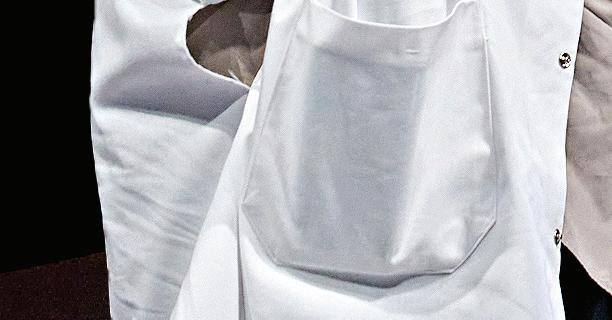
Robert Icke, who wrote this adaptation of Professor Bernhardi, completed in 1912 by the Jewish Austrian doctor-writer Arthur Schnitzler, has preserved the anti-Jewish poison which is that play’s main theme, and deftly shown how it can grow and morph. “You’ve murdered my little girl and I will exact that pound of flesh,” the priest (played with appropriate menace by John Mackay) tells Wol .

Icke, who also directs, embraces the ‘comedy’ label Schnitzler applied to his play. When Charlie, the oftensarcastic doctor’s partner, quotes Oscar Wilde on wit to her, she scathingly responds: “Karaoke is the lowest form of wit.” And as outrage against Dr Wol takes hold, and an online petition takes o , she enters diagnostic mode, announcing conclusively: “I am trending.”
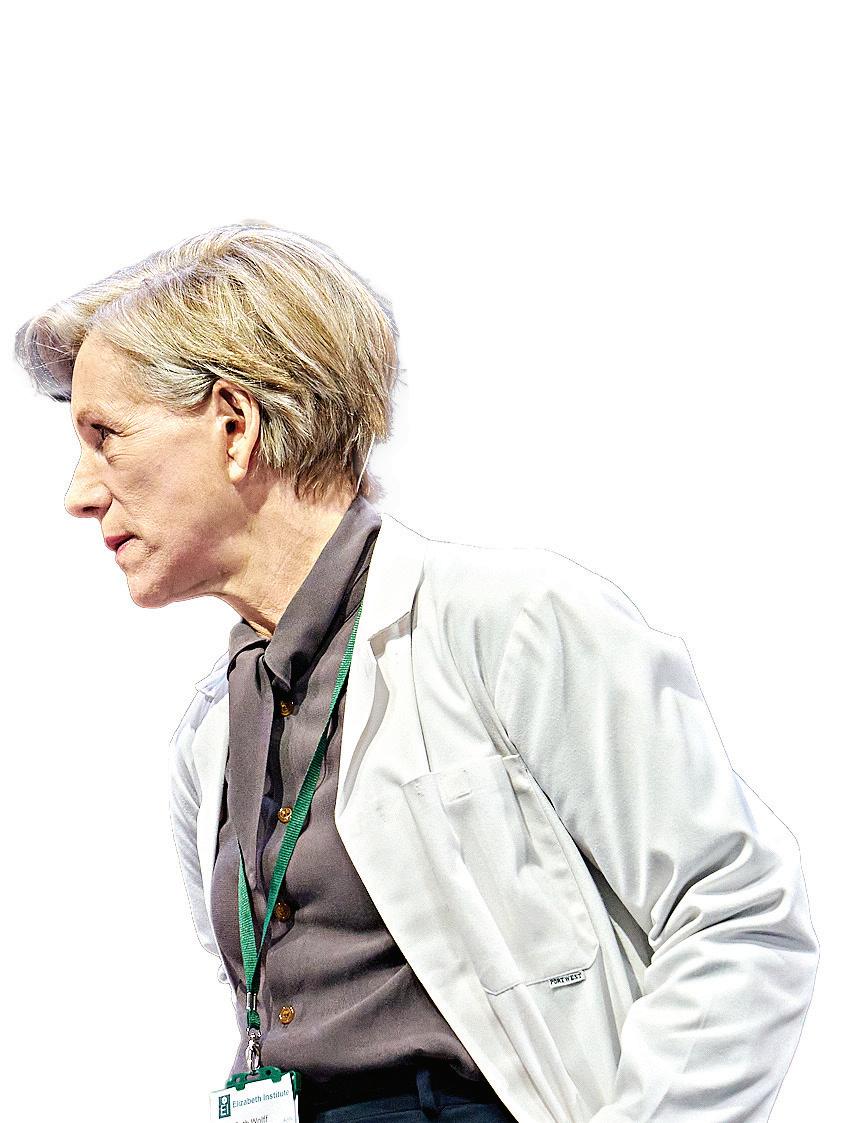
Juliet Stevenson, who debuted the title role three years ago at the Almeida, from where this production has transferred, gives a truly outstanding performance as Wol , the capable, committed and conscientious professional, “born to Jewish parents” but not a subscriber to religion, as she puts it.

The cross-gender and cross-ethnic casting among several of the supporting characters mirror the surprises and confusion the rise of identity politics brings. And as the misguided and overzealous protagonists become polarised in their own thoughts, the disorientation and unreality are felt by the audience as the stage begins slowly to rotate.

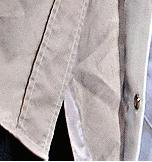
This powerful play is a stark and troubling reminder of how groupthink can upend the work of a vital institution, run on democratic principles, but also, in the final scene between Wol and the priest, how the calm voices of honesty and humanity can prevail.
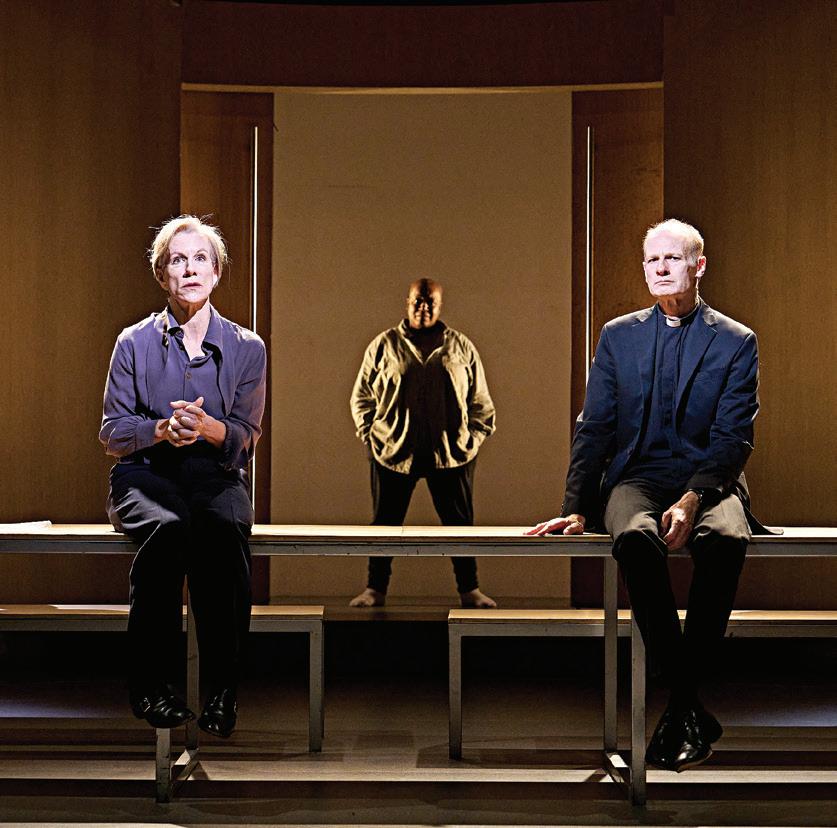
• The Doctor is at the Duke of York’s Theatre until 11 December. Book at thedukeofyorks. com/the-doctor

Arthur Schnitzler’s play Professor Bernhardi, from which The Doctor is adapted, is unusual in being free of the erotic or sexual themes that characterise most of his output. The best-known works by the Viennese author and dramatist (pictured right) are probably his ultra-provocative 1897 play Reigen (La Ronde) and his indecent proposal novella Fräulein Else. Both still shock.
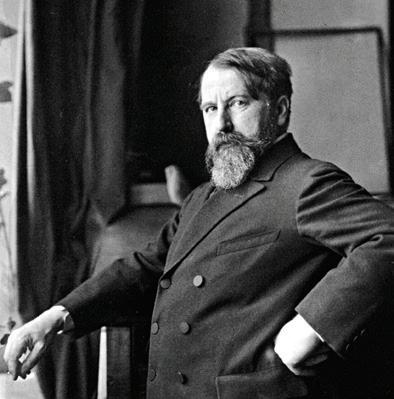
In Fräulein Else, the 19-year-old protagonist, who is staying at a fashionable spa with her aunt, receives a letter from her mother begging her to save her father from debtor’s jail by asking a wealthy family friend to lend them 30,000 guilders (later increased to 50,000). Through the young woman’s stream of consciousness, her moral struggle emerges a er the lecherous friend agrees to lend the money – but only if Elsa undresses for him.
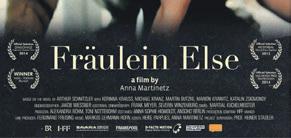

Fräulein Else has been adapted three times for the big screen, first in a 1929
German silent film and most recently in 2014, by the Austrian Anna Martinetz. What Else and Bernhardi have in common is that they are two of the few identifiably Jewish protagonists in Schnitzler’s output. And Bernhardi is the only one of his works to take as its main theme the antisemitism that was starting to pervade life in Austria at the time he was writing, something he had explored in his 1908 novel Der Weg ins Freie (The Way into the Open), the tale of an unhappy love a air. Schnitzler, who had a career as a doctor before turning to writing, would have experienced the rising antisemitism around him.
The Austrian might be said to have something in common with the American film director Woody Allen, who in 1975 starred with Diane Keaton in his satiric comedy Love and Death Schnitzler, asked about the critical view that his own works all treated the same subjects, replied: “I write of love and death. What other subjects are there?”



The spa therapist had given me the mother and father of all facials as we sailed the calm waters around some charming Greek islands. A friend on board told me I looked 10 years younger – and that was before he hit the red wine. The next morning, during a presentation on the incredible history of Holland America cruise line, which celebrates its 150th anniversary next year, we learned about a passenger who years ago had purchased an additional cabin... for her plastic surgeon! As the story goes, she booked a voyage lasting three months and finished up looking 20 years younger.


I was on board Holland America’s Oosterdam ship for just a week, but forget how I looked afterwards... I came away feeling bloomin’ marvellous. I travelled with my youngest daughter, Jessica, for some quality time together.

I am a veteran cruiser, but Holland America knocks me out of the ballpark with its experiences at sea. It started out as a shipping and passenger line and was responsible for transporting hundreds of thousands of emigrants from the Netherlands to the ‘land of opportunity’. Johnny ‘Tarzan’ Weissmuller was among those to arrive in the United States as a boy.

There was no monkey business in recent times, as this company slowly and superbly navigated its way through choppy waters caused by the pandemic. It has been secondto-none for passenger wellbeing – guests have to prove they are Covid-clear before checking in, while cleanliness and safety measures are first class. In fact, we bypassed one stop as the captain deemed it too windy to board the tenders to get ashore. No one could argue with that, and the alternative was none too shabby
– a relaxing day at sea and, as is the way on board, yet more food.

This famous old cruise line led the way for passenger care a century ago, too. Those travelling sometimes had to wait at the port for weeks before heading o to start a new life, and owners of boarding houses would take liberties with their prices. Holland America saw what was going on and built its own comfortable ‘hotel’ at low prices, including a kosher kitchen.
For the voyage itself, Holland America was the first to introduce three square meals a day. This meant guests would arrive at Ellis Island in shipshape condition and nearly all passed the tricky immigration health checks. Today, the food is endless – and you can have three meals before breakfast! One can expect to put on half a stone after the average cruise and I kept up with tradition (though there is an excellent gym on board... so they tell me).
The highlight, without doubt, is dining at the speciality restaurants; the extra cost is worth every penny. Celebrity international


chefs have created memorable dining experiences, as we discovered at the mouthwatering Pinnacle steakhouse and then the Italian restaurant Canaletto, which o ers a large selection of delicious dishes, many for sharing.
On more than one occasion Holland America has had an entire ship chartered by Jewish groups – no mean feat considering passenger capacities range from about 1,400 to more than 2,600.



But if you want to dine kosher you don’t need to join a charter – you just need to give about six weeks’ notice.

The Oosterdam is part of a fleet of 11 ships, with the latest, the Rotterdam, inaugurated in May 2022. All the ship names end in ‘dam’ – and you are more than likely to have a damn good experience!
Jessica and I were especially impressed by the sta and their willingness to go overboard (happily, not literally). In our spacious cabin wardrobe there was even a basket to leave out your shoes and they would be returned beautifully polished at no extra charge. Passengers who appreciate art can enjoy the best there is at sea as they stroll between decks as the ship has a wonderful array of paintings, sculptures, vases and ornaments.
Athens, and our first port of call was the enchanting city of Istanbul.
Although the best sight, the Blue Mosque, is currently undergoing a major renovation and was hidden behind sca olding, the nearby Hagia Sophia, which dates from 537, is there in all its glory and this mosque, originally built as a Christian cathedral, is a must-see.
With 3,000 mosques in the capital, I was surprised to learn there is still a healthy Jewish community, with about 17,000 folk and plenty of shuls to cater for them. We took a short taxi ride from the historic Galata Tower – where the ship docks – to the beautiful Ahrida Synagogue, which dates back to the 1430s and is one of the oldest shuls in the city. It is located in Balat, once a thriving Jewish quarter.
Back on board, we enjoyed a terrific Turkish-style sail-away party before a brilliant magician entertained us in the main theatre later that evening. Then we ventured to the Greek islands.
Mykonos turned out to be no-go but other ships were also turning away and the winds calmed down in time to enjoy Souda in Crete the next day and then Olympia, with its wonderful temple remains. It is, of course, the site of the original Olympic Games.
The great thing about cruising is that after some memorable sightseeing, it is always a pleasure to return to the ship, especially one as good as the Oosterdam. So, it was back on our sun loungers with the only decision to make being what time to return to the bu et. There is something special about looking out to sea and I was more than happy with my choice of music from my headphones as we drifted between islands. Yep, a bit of Rod Stewart... after all, we were sailing...
A seven-day Aegean Sunsets cruise leaving 30 June 2023 on the Oosterdam starts at £1,209pp including speciality dining, drinks, wifi and $100 shore credit.
















 RABBI ALEX CHAPPER BOREHAMWOOD & ELSTREE SYNAGOGUE
RABBI ALEX CHAPPER BOREHAMWOOD & ELSTREE SYNAGOGUE



Thailand’s Katanyou Wuttichaitanakorn recently won the Young Wildlife Photographer of the Year 2022 competition.
The 16-year-old’s winning entry is a close-up of a Bryde’s whale and the baleen plates in its mouth which are used to filter food. You can even see a sardine flying through the air as it tries to escape being gobbled down by the great cetacean.

Started in 1964 by BBC Wildlife Magazine, Wildlife Photographer of the Year is one of the most prestigious competitions of its type in world photography and the competition is now organised by London’s Natural
History Museum. This year’s event drew 38,575 entries from 93 countries and all the category winners, like Katanyou, highlight the incredible natural beauty of the world we live in and provide us with a unique snapshot of the wonders of creation.
It is the story we all learnt as children, in this week’s parsha, Bereishit – God created the world in six days and rested on the seventh. But what they did not teach us is that before God created this world, He created a thousand hidden worlds, all of them swept away in the blink of an eye until He created this one and declared:
“This one pleases me, those did not.”


It is little wonder we were not taught it, as it is a tradition contained in the mystical teachings of the Zohar. To even attempt to understand the depths of this idea, we
first have to remember the midrashic statement that there are seventy facets to the Torah, which highlights that there are multiple ways in which the Torah may be interpreted.
Coupled with the fact that there are more than 200 major commentaries on just the first word of the Torah alone, we realise that it would take us a lifetime to know them all.
However, what emerges is a greater appreciation of the complexity of the world and an acknowledgement of the di erent levels of design and incredible beauty that surround us.
Like the thousand hidden worlds, we may not be able to see them all but
we sense that there is so much more to the universe than meets the eye.
The Torah is the blueprint of the world. As another midrash teaches: “God looked into the Torah and created the world,” and the more we study it the more we discover the
layers of meaning it contains and the greater understanding we have of our world and its Creator.
Captain Kirk may have said that space is the final frontier but certainly knowledge is the key to reaching the Divine.
In our thought-provoking series, rabbis, rebbetzins and educators relate the week’s parsha to the way we live today
We are living through di cult times, but this is nothing new. Love and support can help us become resilient.
Boris Cyrulnik, who was aged two when war broke out between France and Germany, had his world shattered. His father, who was enlisted in the French army, was taken prisoner and then sent to his death in Auschwitz. In 1942, his mother met the same fate.
Boris, now five and orphaned, was entrusted to the care of a foster family for his own protection. He remembers a loving, caring family, a fact which helped him to overcome his childhood trauma.
Later on, as a doctor and psychiatrist, he expanded on the notion of resilience for children, travelling to war zones to

help young people to process their trauma and rebuild their lives.
Resilience is a term first used in the shipyard industry, describing the capacity of a material to withstand a shock. How do we overcome our traumas? How do we withstand the blows of life?
Joseph in the Book of Genesis was not a particularly nice character. His early dreams about himself put him at odds with his siblings. His father Jacob favoured him over his brothers, creating a rift among them all. He was thrown into a pit and his brothers plotted his death, but Judah saved him and sold him to a caravan of merchants. This first act of love gave him a grounding in resilience and forgiveness.

Joseph went to Egypt. There, he was
entrusted with the estate of a noble, but soon after was sent to prison because he refused to betray his trust. In jail, he was singled out by his ability to have dreams that come true, and he helped Pharaoh to prepare for di cult times ahead. As a reward, he became second only to Pharaoh, and ruled over Egypt. At the end of the story, Joseph reconciled himself with his brothers, and brought closure to a family feud.
The love shown by his eldest brother and also by his father, along with Joseph’s ability to have dreams about his future, contributed to his capacity to show resilience to make a life for himself and to mend broken relationships. When there is hardship around us, the love of our family and the support of our community are the anchors that keep us steady in the storm.
In addition to that, we must never forget that there is a life ahead, that we can invent or reinvent our future, and that we are capable of doing so.



Our trusty team of advisers answers your questions about everything from law and finance to dating and dentistry.
This week: Applying for a mobility apartment, help for a new baby born deaf, and how to manage vacant properties
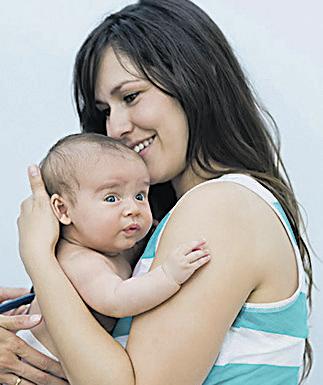 LISA WIMBORNE CHARITY EXECUTIVE JEWISH BLIND & DISABLED
LISA WIMBORNE CHARITY EXECUTIVE JEWISH BLIND & DISABLED

I have seen that you are starting work on a new building in Mill Hill East and wonder if I should apply. I have recently been diagnosed with multiple sclerosis and my mobility is slowly deteriorating. When will it be opening and is there a waiting list?

Thank you for getting in touch. We have indeed recently begun working on site in Mill Hill East. The development, which will be called Ephraim Court, will provide 23 one-bedroom mobility apartments and seven two-bedroom mobility apartments as well as
an overnight studio apartment for the on-site house manager and a range of communal facilities. We expect to be able to welcome tenants in summer 2024.
All our developments are for people just like yourself with physical disabilities and/ or vision impairments. But I would say that if you are struggling in your current home and are considering applying to us, please don’t wait for our new building to open.
Demand for our o ering contines to rise, and we have a waiting list in Barnet and Hertfordshire. However, we have a few flats available in other areas, which we will allocate to those in greatest need first.
If its Barnet you want, then we advise you to apply without delay, as the sooner you are in our system, the sooner we may have something to o er you.w


To find out about our application process, please visit www.jbd.org or call 020 8371 6611.

a big warm welcome to the world!
My daughter has just had her first baby – my first grandchild – Ava. The hospital told her she’s deaf. There is no deafness in our family, so I really find it difficult to believe. My daughter is refusing to talk about it all. What can I do? Michelle



This is a joyful and also very di cult emotional time for all of your family.
Jody, our family support worker, has years of experience and a wealth of knowledge. She is here to help your family to adjust to Ava’s diagnosis and support you emotionally and practically every step of the way from here.


She’ll give you all the information you need to make critical decisions about everything including communicating with Ava, possible medical interventions such as cochlear implants, the most suitable nurseries, and schooling.
In time, and when your daughter is ready, Jody will be there for her too – and she will introduce her to other mums to turn to for guidance.
Every family who calls Jody says it’s such a relief to be able to talk to someone who understands, who has been in the same situation, who can put them in touch with many other families who have received the same ‘bolt out of the blue’ news, and has felt similarly shocked.
We can also o er practical, positive help, instantly. Please, don’t hesitate. Phone Jody at JDA on 020 8446 0502 – it will help.



I inherited a small property portfolio, mainly small lock-up shops, and I manage them myself. However, my main job has been relocated up north and I’ve had to move, which means I now can’t easily do this. Several of the shops closed during the pandemic, and now
another two are shutting as they can’t afford their rising energy bills. So I have a growing number of vacant properties, in old buildings, with no easy means to keep an eye on them.
The flat roof of one cracked during the recent heatwave and I know from experience the problems winter brings. Until I find new tenants, without rent I can’t afford to pay fees for agents to manage these properties so what do you suggest?

We certainly are in di cult times, especially regarding energy, and extremes of weather can cause problems in any building, especially
if they are old, and vacant. I suggest you put guardians in your empty properties until things turn around. Even if they are retail units, temporary living accommodation is easily sorted.
The guardians will notice any obvious problems with the building since they are living there, and the company maintenance team will regularly check for all other potential trouble and deal with it. And it will cost nothing at all.
•
•
Qualifications:
•
• LLB solicitors finals.
• Member of Chartered
Institute.
PATIENT HEALTH 020 3146 3444/5/6 www.patienthealth.co.uk trevor.gee@patienthealth.co.uk
Qualifications:
• Jewellery manufacturer since 1980s.
• Expert in the manufacture and supply of diamond jewellery, wedding rings and general jewellery.
• Specialist in supply of diamonds to the public at trade prices.
JEWELLERY CAVE LTD 020 8446 8538 www.jewellerycave.co.uk jonathan@jewellerycave.co.uk
Qualifications:
• Lawyer with over 20 years’ experience in will drafting and trust and estate administration. Last 14 years at KKL Executor and Trustee Company.
• In close contact with clients to ensure all legal and pastoral needs are cared for.
• Member of the Society of Trust and Estate Practitioners.
KKL EXECUTOR AND TRUSTEE COMPANY 020 8732 6101 www.kkl.org.uk enquiries@kkl.org.uk

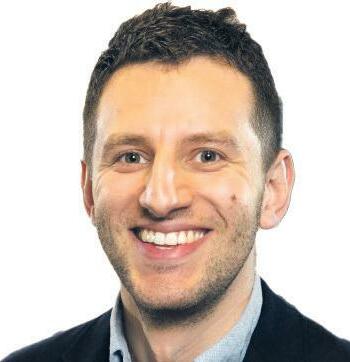


Qualifications:
• Managing Director of Stephen Morris Shipping Ltd.
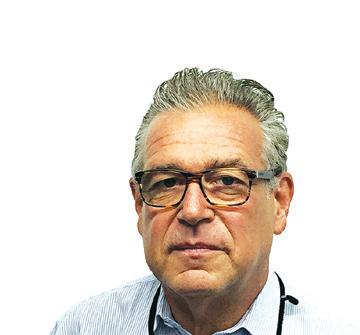
• 45 years’ experience in shipping household and personal effects.
• Chosen mover for four royal families and three UK prime ministers.
• Offering proven quality specialist advice for moving anyone across the world or round the corner.
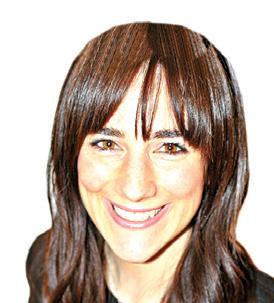
STEPHEN MORRIS SHIPPING LTD 020 8832 2222 www.shipsms.co.uk stephen@shipsms.co.uk
Qualifications:
• Specialist in claims of unfair dismissal, redundancy and discrimination.





• Negotiate out-of-court settlements and handle complex tribunal cases.
• HR services including drafting contracts and policies, advising on disciplinaries, grievances and providing staff training.
• Contributor to The Times HRMagazine and other titles.
SPENCER WEST LLP 020 7925 8080 www.spencer-west.com emma.gross@spencer-west.com
Qualifications:
• CEO of London’s largest guardian company with more than 20 years’ experience
• Well-known and highly regarded British security industry expert.

• Specialists in securing and protecting empty commercial and residential properties.
• Clients include small private landlords to major national property companies and managing agents, as well as those in the public sector.
GLOBAL GUARDIANS MANAGEMENT 020 3818 9100 www.global-guardians.co.uk info@global-guardians.co.uk


Qualifications:
• Lawyer with more than 11 years of experience working in the legal sector. Specialist in corporate, commercial, media, sport and start-ups.
• Master’s degree in Intellectual Property Law from the University of London.

• Non-Executive Director of various companies advising on all governance matters.
LOVATT LEGAL LIMITED 07753 802 804 adam@lovattlegal.co.uk

Qualifications:
• 20 years+ hands-on experience, leading JDA in significant growth and development.
• Understanding of the impact of deafness on people, including children, at all stages.
• Extensive services for people affected by hearing loss/tinnitus.







• Technology room with expert advice on and facilities to try out the latest equipment. Hearing aid advice, support and maintenance.
JEWISH DEAF ASSOCIATION 020 8446 0502 www.jdeaf.org.uk mail@jdeaf.org.uk

Qualifications:
• Professional choreographer qualified in dance, drama and Zumba (ZIN, ISTD & LAMDA), gaining an honours degree at Birmingham University.
• Former contestant on ITV’s Popstars, reaching bootcamp with Myleene Klass, Suzanne Shaw and Kym Marsh.
• Set up Dancing with Louise 19 years ago.
DANCING WITH LOUISE 075 0621 7833 www.dancingwithlouise.co.uk Info@dancingwithlouise.com
• A member of the APCC, specialising in financial services compliance for:
• Mortgage, protection and general insurance intermediaries;
• Lenders, credit brokers, debt counsellors and debt managers;
• Alternative Investment Fund managers;
• E-Money, payment services, PISP, AISP and grant-making charities.
RICHDALE CONSULTANTS LTD 020 7781 8019 www.richdale.co.uk jacob@richdale.co.uk



Qualifications:
• Hands-on service, with full and personalised support for international transfers.
• Get the most out of your currency exchange with regards to pension income, when purchasing your first house in Israel or benefitting from an inheritance from aboard.
• UK leader in financial exchange and partner to brands such as St James Place and Hargreaves Lansdown with industry-beating Trustpilot score.
CURRENCIES DIRECT 0786 0595 890 / 0207 847 9400 www.currenciesdirect.com/jn lee.goldfarb@currenciesdirect.com
Qualifications:
Qualifications:
• Leon is an Israeli and UK accountant based in Ramat Gan, Israel.



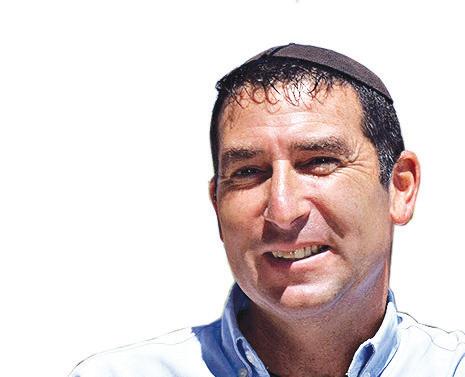


• He is a Partner at Harris Horoviz Consulting & Tax Ltd.

• The firm specializes in Israeli and international tax advice, accounting and tax reporting for investors, Olim and businesses.
• Leon’s motto is: Our numbers speak your language!
HARRIS HOROVIZ CONSULTING & TAX LTD +972-3-6123153 / + 972-54-6449398 leon@h2cat.com
Qualifications:
• Director of UK Aliyah for Nefesh B’Nefesh, an organisation that helps facilitate aliyah from the UK.
• Conducts monthly seminars and personal aliyah meetings in London.
• An expert in working together with clients to help plan a successful aliyah.
NEFESH B’NEFESH 0800 075 7200 www.nbn.org.il dov@nbn.org.il


Qualifications:
• Qualification: 40 years experience as a matrimonial and divorce solicitor and mediator, specialising in all aspects of family matrimonial law, including:

• Divorce, pre/post-nuptial agreements, cohabitation agreements, domestic violence, children’s cases, grandparents’ rights to see grandchildren, pet disputes, family disputes.
• Frequent broadcaster on national and International radio and television.
LLOYD PLATT & COMPANY SOLICITORS 020 8343 2998 www.divorcesolicitors.com lloydplatt@divorcesolicitors.com
• FCCA chartered certified accountant.
• Accounting, taxation and business advisory services.
• Entrepreneurial business specialist including start-up businesses.
• Specialises in charities; Personal tax returns.


• Maurice Wohl Charitable Foundation Volunteer of the Year JVN award.
SOBELL RHODES LLP 020 8429 8800 www.sobellrhodes.co.uk a.shelley@sobellrhodes.co.uk

Qualifications:
• Launched Man on a Bike IT consultancy 15 years ago to provide computer support for the home and small businesses.


• Clients range from legal firms in the City to families, small business owners and synagogues.
• More than 18 years’ experience.
MAN ON A BIKE 020 8731 6171 www.manonabike.co.uk mail@manonabike.co.uk
Qualifications:
• Professional insurance and reinsurance broker. Offering PI/D&O cover, marine and aviation, property owners, ATE insurance, home and contents, fine art, HNW.
• Specialist in insurance and reinsurance disputes, utilising Insurance backed products. (Including non insurance business disputes).
• Ensuring clients do not pay more than required.
RISK RESOLUTIONS 020 3411 4050 www.risk-resolutions.com ashley.prager@risk-resolutions.com
Qualifications:
Able to draw on the charity’s 50 years of experience in enabling people with physical disabilities or impaired vision to live independently, including:
• The provision of specialist accommodation with 24/7 on site support.
• Knowledge of the innovations that empower people and the benefits available.
• Understanding of the impact of a disability diagnosis.
JEWISH BLIND & DISABLED 020 8371 6611 www.jbd.org Lisa@jbd.org
Email: sales@jewishnews.co.uk
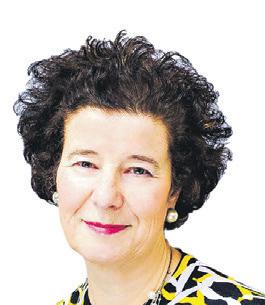
Qualifications:
• Provides free professional one-to-one advice at Resource to help unemployed into work.
• Offers mock interviews and workshops to maximise job prospects.
• Expert in corporate management holding director level marketing, commercial and general management roles.
RESOURCE 020 8346 4000 www.resource-centre.org office@resource-centre.org
Qualifications:
• Co-Founder and Technical Director of ADWConnect – a specialist in business telecommunications, serving customers worldwide.
• Independent consultant and supplier of Telephone & Internet services.
• Client satisfaction is at the heart of everything my team and I do, always striving to find the most cost-effective solutions.
ADWCONNECT 0208 089 1111 www.adwconnect.com hello@adwconnect.com
ARE YOU PAYING TOO MUCH FOR YOUR HEALTH PLAN?
Get it checked, free of charge, by an FCA registered, leading health insurance consultant
GET IT CHECKED FREE OF CHARGE BY AN FCA REGGISTERED LEADING HEALTH INSURANCE CONSULTANT
PATIENT HEALTH IS THIS NEWSPAPER’S ‘ASK THE EXPERT’
Patient Health is this newspapers ‘Ask The Expert’
See how you could significantly reduce your premiums and possibly obtain a higher level of cover, and we will always explain whether pre-existing conditions would be covered. We’re also happy for you to call or pop-in.
SEE HOW YOU COULD SIGNIFICANTLY REDUCE THE PREMIUMS AND PERHAPS EVEN OBTAIN HIGHER COVER AND WE WILL ALWAYS EXPLAIN WHETHER PRE EXISTING CONDITIONS WOULD BE COVERED WE RE ALSO HAPPY FOR YOU TO CALL OR POP IN 020 3146 3444 trevor gee@patienthealth co uk
020 3146 3444 trevor.gee@patienthealth.co.uk

Where service is all about helping the clieent, only the client and nothing but the client
Where service is all about helping the client, only the client and nothing but the client
WHERE FAMILY HEALTH COMES FIRST Tel: 0203 146 3444/3446: info@patienthealth.co.uk: FCA Regulated 773729: Member of Chartered Insurance Institute
PC, Mac, WiFi, Laptops & Desktops
Looking for a care home for yourself or a loved one? Then you could do no better than to join us as part of our Springdene family. Unlike other care homes, which are often part of large corporations, we are a family business. And we’re still run by the same family that founded it more than 50 years ago. New residents at Springdene can be sure of a warm reception. All our homes – Spring Grove in Hampstead, Spring Lane in Muswell Hill and Springview in Enfield – are rated as good by the Care Quality Commission.

Residents enjoy hotel-style luxury, with their own spacious room, complete with full en-suite facilities, personal telephone and wi-fi. There are three delicious meals a day, with a varied choice of menus.
And there are lots of regular activities, including quizzes, short stories, art competitions and poetry readings, live-streamed concerts and film-showings on a big screen, as well as walks in delightful gardens.
We’ve a great team, o ering wonderful care and everyone is brilliantly looked after.


As our motto says: Life is for living
The ultimate in comfort, Spring Grove is situated on the Finchley Road near to Swiss Cottage and is close to local shops, cultural facilities and a tube station.

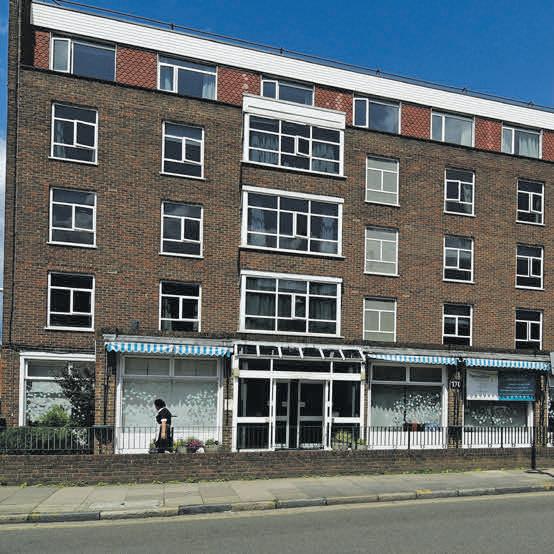
One of the finest and best-appointed homes for older people in North London, Spring Lane is just a short distance from Muswell Hill Broadway.
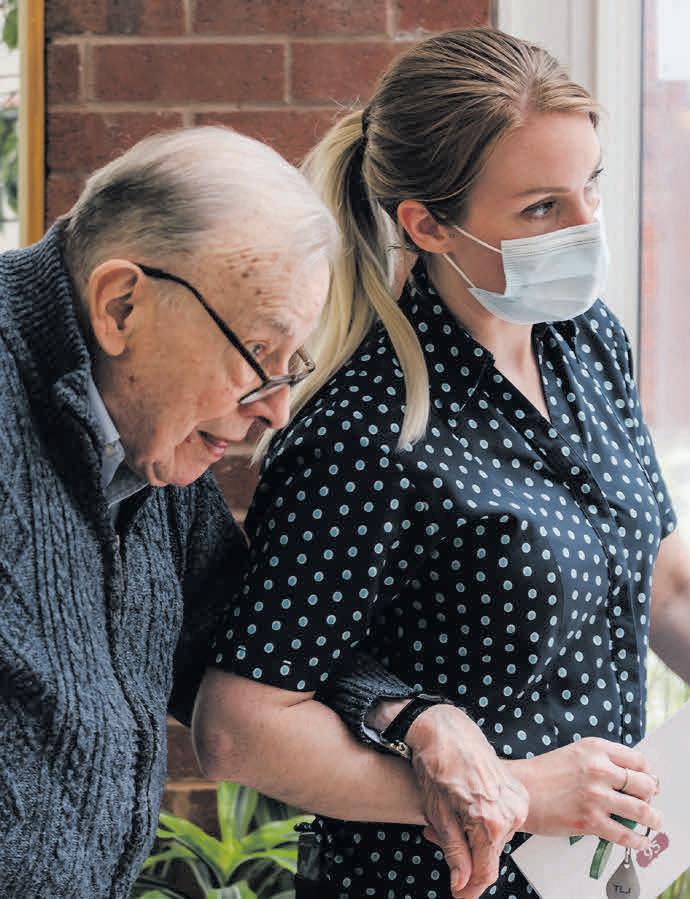








Standing in tranquil surroundings, Springview is a purpose built home, situated near to


shops and
Town with its
ACROSS
3 Caesar salad lettuce (3)
Cater (to) (6)
Battlefields (6)
Robots (8)
The listed types of roses can all be found in the grid. Words may run either forwards or backwards, in a horizontal, vertical or diagonal direction, but always in a straight, unbroken line.
AG NE SN OW BA LL G
AC SE CN AR FV FN E RO UN DE LA YL IA P LJ TS NO WD O NRN O KA GEOS TR EY EI L
IB IH AK AE CR E
LT SL AS IS RE N AV AL SW UO L TAL E WAMC AE TJ EE CL P
LU PR LD MR KA E
EP MG NE AD EB A
HI OM SE CA RO C
TD CT RF YY IH E
HIAWATHA JULIET
ACROSS: 1 Performance, 9 Inane, 10 Bargain, 11 Smartly, 12 Ankle, 13 Even so, 15 Mystic, 18 Uncle, 20 Mascara, 22 Chattel, 23 Awful,
Incessantly.
2 Emanate, 3 Fleet, 4 Rib-eye,
Already, 6 Crank, 7 Kiss-me-quick,
Unreachable, 14 Sheltie, 16 Tearful,
Smalls, 19 Chain, 21 Stain.
Percussion instrument (4)
Act (6)
British film studio which was famous for its comedies (6)
Tidier and smarter (6)
Two-headed muscle (6)
Sob noisily and uncontrollably (4)
Quiet compliance (8)
Absorbent paper (6)
Able (6)
First musical note (3)
Soldier’s greeting (6)
Egg-based liqueur (8)
Invent, make (6)
Barbaric (6)
Sunflower pip, eg (4)
Distant ‘ringed’ planet (6)
Currant cake (3)
Publican (8)
Neon or helium, eg (3)
Chocolatey cream cake (6)
Battered (against) (6)
Cleaning agent (6)
Small bouquets (6)
Head sculpture (4)
In this finished crossword, every letter of the alphabet appears as a code number. All you have to do is crack the code and fill in the grid. Replacing the decoded numbers with their letters in the grid will help you to guess the identity of other letters.
Fill the grid with the numbers 1 to 9 so that each row, column and 3x3 block contains the numbers 1 to 9.
Each cell in an outlined block must contain a digit: a two-cell block contains the digits 1 and 2, a three-cell block contains the digits 1, 2 and 3; and so on. The same digit must not appear in neighbouring cells, not even diagonally.
See next issue for puzzle solutions.
All puzzles © Puzzler Media Ltd - www.puzzler.com



















Email Sales today at sales@jewishnews.co.uk









